
Rio Carnival
The Carnival in Rio de Janeiro is a festival held every year before Lent; it is considered the biggest carnival in the world, with two million people per day on the streets. The first Carnival festival in Rio occurred in 1723.
The traditional Carnival in Rio de Janeiro, Brazil is canceled for the first time because of the COVID-19 pandemic.

The Carnival in Rio de Janeiro is a festival held every year before Lent; it is considered the biggest carnival in the world, with two million people per day on the streets. The first Carnival festival in Rio occurred in 1723.

The COVID-19 pandemic in Brazil has resulted in 35,337,546 confirmed cases of COVID-19 and 690,074 deaths. The virus was confirmed to have spread to Brazil on 25 February 2020, when a man from São Paulo who had traveled to Italy tested positive for the virus. The disease had spread to every federative unit of Brazil by 21 March. On 19 June 2020, the country reported its one millionth case and nearly 49,000 reported deaths. One estimate of under-reporting was 22.62% of total reported COVID-19 mortality in 2020.
Nineteen people are killed and 66 injured when a Kowloon Motor Bus double decker on route 872 in Hong Kong overturns.

The Kowloon Motor Bus Company (1933) Limited (KMB) is a bus company operating franchised services in Hong Kong. It is the largest bus company in Hong Kong by fleet size and number of bus routes. It is a subsidiary of Transport International.

A double-decker bus or double-deck bus is a bus that has two storeys or decks. They are used for mass transport in the United Kingdom, the United States, New Zealand, Europe, Asia and also in cities such as Sydney; the best-known example is the red London bus, namely the AEC Routemaster.

Hong Kong, officially the Hong Kong Special Administrative Region of the People's Republic of China, is a city and special administrative region of China on the eastern Pearl River Delta in South China. With 7.5 million residents of various nationalities in a 1,104-square-kilometre (426 sq mi) territory, Hong Kong is one of the most densely populated places in the world. Hong Kong is also a major global financial centre and one of the most developed cities in the world.

On 10 February 2018, at approximately 18:13 HKT, a Kowloon Motor Bus (KMB) double-decker bus flipped onto its side on Tai Po Road in Tai Po, New Territories. The crash killed 19 people and injured 65.
South Korea decides to stop the operation of the Kaesong joint industrial complex with North Korea in response to the launch of Kwangmyŏngsŏng-4.

South Korea, officially the Republic of Korea (ROK), is a country in East Asia, constituting the southern part of the Korean Peninsula and sharing a land border with North Korea. Its western border is formed by the Yellow Sea, while its eastern border is defined by the Sea of Japan. South Korea claims to be the sole legitimate government of the entire peninsula and adjacent islands. It has a population of 51.75 million, of which roughly half live in the Seoul Capital Area, the fourth most populous metropolitan area in the world. Other major cities include Incheon, Busan, and Daegu.

The Kaesŏng Industrial Region (KIR) or Kaesŏng Industrial Zone (KIZ) is a special administrative industrial region of North Korea (DPRK). It was formed in 2002 from part of the Kaesŏng Directly-Governed City. On 10 February 2016, it was temporarily closed by the South Korean government and all staff recalled by the Park Geun-hye administration, although the former President of South Korea, Moon Jae-in, signalled his desire to "reopen and expand" the region in 2017.

North Korea, officially the Democratic People's Republic of Korea (DPRK), is a country in East Asia. It constitutes the northern half of the Korean Peninsula and shares borders with China and Russia to the north, at the Yalu (Amnok) and Tumen rivers, and South Korea to the south at the Korean Demilitarized Zone. North Korea's border with South Korea is a disputed border as both countries claim the entirety of the Korean Peninsula. The country's western border is formed by the Yellow Sea, while its eastern border is defined by the Sea of Japan. North Korea, like its southern counterpart, claims to be the legitimate government of the entire peninsula and adjacent islands. Pyongyang is the capital and largest city.

Kwangmyongsong-4 or KMS-4 is a reconnaissance satellite launched by North Korea on 7 February 2016.
Thirty-six people are killed and 39 others are injured in a stampede in Allahabad, India, during the Kumbh Mela festival.
On 10 February 2013, during the Hindu festival of Kumbh Mela, a stampede broke out at the train station in Allahabad, Uttar Pradesh, India, killing 42 people and injuring at least 300 people.

Allahabad, officially known as Prayagraj, also known as Ilahabad, is a metropolis in the Indian state of Uttar Pradesh. It is the administrative headquarters of the Allahabad district—the most populous district in the state and 13th most populous district in India—and the Allahabad division. The city is the judicial capital of Uttar Pradesh with the Allahabad High Court being the highest judicial body in the state. As of 2011, Allahabad is the seventh most populous city in the state, thirteenth in Northern India and thirty-sixth in India, with an estimated population of 1.53 million in the city. In 2011 it was ranked the world's 40th fastest-growing city. Allahabad, in 2016, was also ranked the third most liveable urban agglomeration in the state and sixteenth in the country. Hindi is the most widely spoken language in the city.
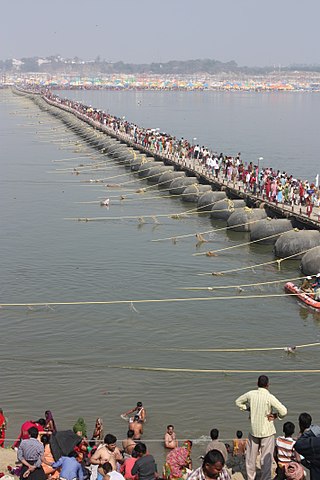
Kumbh Mela or Kumbha Mela is a major pilgrimage and festival in Hinduism. It is celebrated in a cycle of approximately 12 years, to celebrate every revolution Brihaspati (Jupiter) completes, at four river-bank pilgrimage sites: Allahabad, Haridwar (Ganges), Nashik (Godavari), and Ujjain (Shipra). The festival is marked by a ritual dip in the waters, but it is also a celebration of community commerce with numerous fairs, education, religious discourses by saints, mass gatherings of monks, and entertainment. The seekers believe that bathing in these rivers is a means to prāyaścitta for past mistakes, and that it cleanses them of their sins.
The first accidental hypervelocity collision between two intact satellites in low Earth orbit took place when Iridium 33 and Kosmos 2251 destroyed each other.

Hypervelocity is very high velocity, approximately over 3,000 meters per second. In particular, hypervelocity is velocity so high that the strength of materials upon impact is very small compared to inertial stresses. Thus, metals and fluids behave alike under hypervelocity impact. Extreme hypervelocity results in vaporization of the impactor and target. For structural metals, hypervelocity is generally considered to be over 2,500 m/s. Meteorite craters are also examples of hypervelocity impacts.

A satellite or artificial satellite is an object intentionally placed into orbit in outer space. Except for passive satellites, most satellites have an electricity generation system for equipment on board, such as solar panels or radioisotope thermoelectric generators (RTGs). Most satellites also have a method of communication to ground stations, called transponders. Many satellites use a standardized bus to save cost and work, the most popular of which is small CubeSats. Similar satellites can work together as a group, forming constellations. Because of the high launch cost to space, satellites are designed to be as lightweight and robust as possible. Most communication satellites are radio relay stations in orbit and carry dozens of transponders, each with a bandwidth of tens of megahertz.

A low Earth orbit (LEO) is an orbit around Earth with a period of 128 minutes or less and an eccentricity less than 0.25. Most of the artificial objects in outer space are in LEO, with an altitude never more than about one-third of the radius of Earth.

Iridium 33 was a communications satellite launched by Russia for Iridium Communications. It was launched into low Earth orbit from Site 81/23 at the Baikonur Cosmodrome at 01:36 UTC on 14 September 1997, by a Proton-K rocket with a Block DM2 upper stage. The launch was arranged by International Launch Services (ILS). It was operated in Plane 3 of the Iridium satellite constellation, with an ascending node of 230.9°.

Kosmos-2251, was a Russian Strela-2M military communications satellite. It was launched into Low Earth orbit from Site 132/1 at the Plesetsk Cosmodrome at 04:17 UTC on 16 June 1993, by a Kosmos-3M carrier rocket.· The Strela satellites had a lifespan of 5 years, and the Russian government reported that Kosmos-2251 ceased functioning in 1995. Russia was later criticised by The Space Review for leaving a defunct satellite in a congested orbit, rather than deorbiting it. In response, Russia noted that they were not required to do so under international law. In any case, the KAUR-1 satellites had no propulsion system, which is usually required for deorbiting.

On February 10, 2009, two communications satellites—the active commercial Iridium 33 and the derelict Russian military Kosmos 2251—accidentally collided at a speed of 11.7 km/s (26,000 mph) and an altitude of 789 kilometres (490 mi) above the Taymyr Peninsula in Siberia. It was the first time a hypervelocity collision occurred between two satellites – until then, all accidental hypervelocity collisions had involved a satellite and a piece of space debris.
The communications satellites Iridium 33 and Kosmos 2251 collide in orbit, destroying both.

A communications satellite is an artificial satellite that relays and amplifies radio telecommunication signals via a transponder; it creates a communication channel between a source transmitter and a receiver at different locations on Earth. Communications satellites are used for television, telephone, radio, internet, and military applications. As of 1 January 2021, there are 2,224 communications satellites in Earth orbit. Most communications satellites are in geostationary orbit 22,300 miles (35,900 km) above the equator, so that the satellite appears stationary at the same point in the sky; therefore the satellite dish antennas of ground stations can be aimed permanently at that spot and do not have to move to track the satellite.

Iridium 33 was a communications satellite launched by Russia for Iridium Communications. It was launched into low Earth orbit from Site 81/23 at the Baikonur Cosmodrome at 01:36 UTC on 14 September 1997, by a Proton-K rocket with a Block DM2 upper stage. The launch was arranged by International Launch Services (ILS). It was operated in Plane 3 of the Iridium satellite constellation, with an ascending node of 230.9°.

Kosmos-2251, was a Russian Strela-2M military communications satellite. It was launched into Low Earth orbit from Site 132/1 at the Plesetsk Cosmodrome at 04:17 UTC on 16 June 1993, by a Kosmos-3M carrier rocket.· The Strela satellites had a lifespan of 5 years, and the Russian government reported that Kosmos-2251 ceased functioning in 1995. Russia was later criticised by The Space Review for leaving a defunct satellite in a congested orbit, rather than deorbiting it. In response, Russia noted that they were not required to do so under international law. In any case, the KAUR-1 satellites had no propulsion system, which is usually required for deorbiting.

On February 10, 2009, two communications satellites—the active commercial Iridium 33 and the derelict Russian military Kosmos 2251—accidentally collided at a speed of 11.7 km/s (26,000 mph) and an altitude of 789 kilometres (490 mi) above the Taymyr Peninsula in Siberia. It was the first time a hypervelocity collision occurred between two satellites – until then, all accidental hypervelocity collisions had involved a satellite and a piece of space debris.
The Namdaemun gate in Seoul, the first of South Korea's National Treasures, was severely damaged by arson.

Namdaemun, officially known as the Sungnyemun, is one of the Eight Gates in the Fortress Wall of Seoul, South Korea, which surrounded the city in the Joseon dynasty. It is located in Jung-gu between Seoul Station and Seoul Plaza, with the historic 24-hour Namdaemun Market next to the gate.

A National Treasure is a tangible treasure, artifact, site, or building which is recognized by the South Korean government as having exceptional artistic, cultural and historical value to the country. The title is one of the eight State-designated heritage classifications assigned by the administrator of the Cultural Heritage Administration (CHA) in accordance with the Cultural Heritage Protection Act after deliberation by the Cultural Heritage Committee.

On February 10, 2008, an arsonist set fire to the historic Namdaemun gate in Seoul, South Korea, causing severe damage to the 550-year-old structure. The monument was subsequently restored and reopened to the public in 2013.
Forty-three people are killed and three are injured when a Fokker 50 crashes near Sharjah International Airport.

The Fokker 50 is a turboprop-powered airliner, designed as an improved version of the successful Fokker F27 Friendship. The Fokker 60 is a stretched freighter version of the Fokker 50. Both aircraft were manufactured and supported by Dutch aircraft manufacturer Fokker.

Kish Air Flight 7170 was a scheduled international passenger flight from Kish Island in Iran to Sharjah, United Arab Emirates, operated by Iranian airliner Kish Air. On February 10, 2004, the aircraft serving the route, a Fokker 50, lost control and crashed onto terrain while on approach to Sharjah International Airport. A total of 43 out of 46 people on board were killed in the crash, making it the deadliest air disaster involving the Fokker 50.
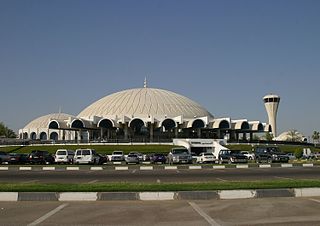
Sharjah International Airport is an international airport located 7 nautical miles east-southeast of Sharjah, United Arab Emirates. It is spread over an area of 15,200,000 m2. It has one runway, making it the only airport in Sharjah capable of international flights as of 2022.
France and Belgium break the NATO procedure of silent approval concerning the timing of protective measures for Turkey in case of a possible war with Iraq.

The North Atlantic Treaty Organization, also called the North Atlantic Alliance, is an intergovernmental military alliance between 30 member states – 28 European and two North American. Established in the aftermath of World War II, the organization implemented the North Atlantic Treaty, signed in Washington, D.C., on 4 April 1949. NATO is a collective security system: its independent member states agree to defend each other against attacks by third parties. During the Cold War, NATO operated as a check on the perceived threat posed by the Soviet Union. The alliance remained in place after the dissolution of the Soviet Union and has been involved in military operations in the Balkans, the Middle East, South Asia, and Africa. The organization's motto is animus in consulendo liber.

Turkey, officially the Republic of Türkiye, is a transcontinental country located mainly on the Anatolian Peninsula in Western Asia, with a small portion on the Balkan Peninsula in Southeast Europe. It shares borders with the Black Sea to the north; Georgia to the northeast; Armenia, Azerbaijan, and Iran to the east; Iraq to the southeast; Syria and the Mediterranean Sea to the south; the Aegean Sea to the west; and Greece and Bulgaria to the northwest. Cyprus is located off the south coast. Turks form the vast majority of the nation's population and Kurds are the largest minority. Ankara is Turkey's capital, while Istanbul is its largest city and financial centre.

Iraq, officially the Republic of Iraq, is a country in Western Asia. It is bordered by Turkey to the north, Iran to the east, the Persian Gulf and Kuwait to the southeast, Saudi Arabia to the south, Jordan to the southwest and Syria to the west. The capital and largest city is Baghdad. Iraq is home to diverse ethnic groups including Iraqi Arabs, Kurds, Turkmens, Assyrians, Armenians, Yazidis, Mandaeans, Persians and Shabakis with similarly diverse geography and wildlife. The vast majority of the country's 44 million residents are Muslims – the notable other faiths are Christianity, Yazidism, Mandaeism, Yarsanism and Zoroastrianism. The official languages of Iraq are Arabic and Kurdish; others also recognised in specific regions are Neo-Aramaic, Turkish and Armenian.
IBM supercomputer Deep Blue defeats Garry Kasparov in chess for the first time.

The International Business Machines Corporation (IBM) is an American multinational technology corporation headquartered in Armonk, New York, with operations in over 171 countries. The company began in 1911, founded in Endicott, New York, by trust businessman Charles Ranlett Flint, as the Computing-Tabulating-Recording Company (CTR) and was renamed "International Business Machines" in 1924. IBM is incorporated in New York.

Deep Blue was a chess-playing expert system run on a unique purpose-built IBM supercomputer. It was the first computer to win a game, and the first to win a match, against a reigning world champion under regular time controls. Development began in 1985 at Carnegie Mellon University under the name ChipTest. It then moved to IBM, where it was first renamed Deep Thought, then again in 1989 to Deep Blue. It first played world champion Garry Kasparov in a six-game match in 1996, where it lost four games to two. It was upgraded in 1997 and in a six-game re-match, it defeated Kasparov by winning three games and drawing one. Deep Blue's victory is considered a milestone in the history of artificial intelligence and has been the subject of several books and films.

Garry Kimovich Kasparov is a Russian chess grandmaster, former World Chess Champion, writer, political activist and commentator. His peak rating of 2851, achieved in 1999, was the highest recorded until being surpassed by Magnus Carlsen in 2013. From 1984 until his retirement in 2005, Kasparov was ranked world No. 1 for a record 255 months overall for his career, the most in history. Kasparov also holds records for the most consecutive professional tournament victories (15) and Chess Oscars (11).
Ron Brown is elected chairman of the Democratic National Committee, becoming the first African American to lead a major American political party.

Ronald Harmon Brown was an American politician. He served as the United States Secretary of Commerce during the first term of President Bill Clinton. Prior to this he was chairman of the Democratic National Committee (DNC). He was the first African American to hold these positions. He was killed, along with 34 others in a 1996 plane crash in Croatia.

The Democratic National Committee (DNC) is the governing body of the United States Democratic Party. The committee coordinates strategy to support Democratic Party candidates throughout the country for local, state, and national office, as well as works to establish a "party brand". It organizes the Democratic National Convention held every four years to nominate a candidate for President of the United States and to formulate the party platform. While it provides support for party candidates, it does not have direct authority over elected officials. When a Democrat is president, the White House controls the Committee. According to Boris Heersink, "political scientists have traditionally described the parties’ national committees as inconsequential but impartial service providers."

African Americans are an ethnic group consisting of Americans with partial or total ancestry from sub-Saharan Africa. The term "African American" generally denotes descendants of enslaved Africans who are from the United States. While some Black immigrants or their children may also come to identify as African-American, the majority of first generation immigrants do not, preferring to identify with their nation of origin.

A political party is an organization that coordinates candidates to compete in a particular country's elections. It is common for the members of a party to hold similar ideas about politics, and parties may promote specific ideological or policy goals.
Kenyan soldiers kill an estimated 5000 ethnic Somali Kenyans in the Wagalla massacre.

The Kenya Army is the land arm of the Kenya Defence Forces.
The Wagalla massacre was a massacre of ethnic Somalis by the Kenyan Army on 10 February 1984 in Wajir County, Kenya. Daniel arap Moi opened barracks near Wagalla, where he brought soldiers to 'discipline the villagers irrespective of age'.
Ras Al Khaimah joins the United Arab Emirates, now making up seven emirates.

Ras Al Khaimah (RAK) is the largest city and capital of the Emirate of Ras Al Khaimah, United Arab Emirates. It is the sixth-largest city in UAE after Dubai, Abu Dhabi, Sharjah, Al Ain and Ajman. The city is divided by a creek into two parts: old town in the west and Al Nakheel in the east.

The United Arab Emirates, or simply the Emirates, is a country in Western Asia. It is located at the eastern end of the Arabian Peninsula and shares borders with Oman and Saudi Arabia, while having maritime borders in the Persian Gulf with Qatar and Iran. Abu Dhabi is the nation's capital, while Dubai, the most populous city, is an international hub.
The 25th Amendment to the United States Constitution is ratified.

The Twenty-fifth Amendment to the United States Constitution deals with presidential succession and disability.
The Royal Australian Navy aircraft carrier Melbourne collided with and sank the destroyer Voyager in Jervis Bay, killing 82 crew members aboard the latter ship.
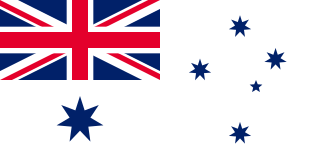
The Royal Australian Navy (RAN) is the Senior Service of the Australian Defence Force (ADF). The professional head of the RAN is Chief of Navy (CN) Vice Admiral Mark Hammond AM, RAN. CN is also jointly responsible to the Minister of Defence (MINDEF) and the Chief of Defence Force (CDF). The Department of Defence as part of the Australian Public Service administers the ADF.

HMAS Melbourne (R21) was a Majestic-class light aircraft carrier operated by the Royal Australian Navy (RAN) from 1955 until 1982, and was the third and final conventional aircraft carrier to serve in the RAN. Melbourne was the only Commonwealth naval vessel to sink two friendly warships in peacetime collisions.
The Melbourne–Voyager collision, also known as the Melbourne–Voyager incident or simply the Voyager incident, was a collision between two warships of the Royal Australian Navy (RAN); the aircraft carrier HMAS Melbourne and the destroyer HMAS Voyager.
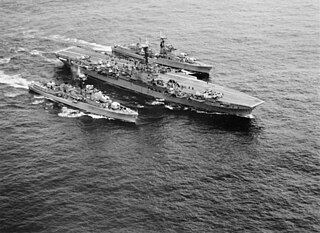
HMAS Voyager was a Daring-class destroyer of the Royal Australian Navy (RAN), that was lost in a collision in 1964.

Jervis Bay is a 102-square-kilometre (39 sq mi) oceanic bay and village on the south coast of New South Wales, Australia, said to possess the whitest sand in the world.
Melbourne–Voyager collision: The aircraft carrier HMAS Melbourne collides with and sinks the destroyer HMAS Voyager off the south coast of New South Wales, Australia, killing 82.
The Melbourne–Voyager collision, also known as the Melbourne–Voyager incident or simply the Voyager incident, was a collision between two warships of the Royal Australian Navy (RAN); the aircraft carrier HMAS Melbourne and the destroyer HMAS Voyager.

HMAS Melbourne (R21) was a Majestic-class light aircraft carrier operated by the Royal Australian Navy (RAN) from 1955 until 1982, and was the third and final conventional aircraft carrier to serve in the RAN. Melbourne was the only Commonwealth naval vessel to sink two friendly warships in peacetime collisions.

HMAS Voyager was a Daring-class destroyer of the Royal Australian Navy (RAN), that was lost in a collision in 1964.

New South Wales is a state on the east coast of Australia. It borders Queensland to the north, Victoria to the south, and South Australia to the west. Its coast borders the Coral and Tasman Seas to the east. The Australian Capital Territory and Jervis Bay Territory are enclaves within the state. New South Wales' state capital is Sydney, which is also Australia's most populous city. In December 2021, the population of New South Wales was over 8 million, making it Australia's most populous state. Just under two-thirds of the state's population, 5.3 million, live in the Greater Sydney area.
Rudolf Abel, a Soviet spy arrested by the FBI, was exchanged for Francis Gary Powers, the pilot of the CIA spy plane that had been shot down over Soviet airspace two years earlier.
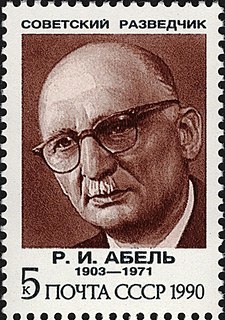
Rudolf Ivanovich Abel, real name William August Fisher, was a Soviet intelligence officer. He adopted his alias when arrested on charges of conspiracy by the FBI in 1957.

The Federal Bureau of Investigation (FBI) is the domestic intelligence and security service of the United States and its principal federal law enforcement agency. Operating under the jurisdiction of the United States Department of Justice, the FBI is also a member of the U.S. Intelligence Community and reports to both the Attorney General and the Director of National Intelligence. A leading U.S. counterterrorism, counterintelligence, and criminal investigative organization, the FBI has jurisdiction over violations of more than 200 categories of federal crimes.

A prisoner exchange or prisoner swap is a deal between opposing sides in a conflict to release prisoners: prisoners of war, spies, hostages, etc. Sometimes, dead bodies are involved in an exchange.

Francis Gary Powers was an American pilot whose Central Intelligence Agency (CIA) Lockheed U-2 spy plane was shot down while flying a reconnaissance mission in Soviet Union airspace, causing the 1960 U-2 incident.

The Central Intelligence Agency, known informally as the Agency and historically as the Company, is a civilian foreign intelligence service of the federal government of the United States, officially tasked with gathering, processing, and analyzing national security information from around the world, primarily through the use of human intelligence (HUMINT) and performing covert actions. As a principal member of the United States Intelligence Community (IC), the CIA reports to the Director of National Intelligence and is primarily focused on providing intelligence for the President and Cabinet of the United States. President Harry S. Truman had created the Central Intelligence Group under the direction of a Director of Central Intelligence by presidential directive on January 22, 1946, and this group was transformed into the Central Intelligence Agency by implementation of the National Security Act of 1947.

On 1 May 1960, a United States U-2 spy plane was shot down by the Soviet Air Defence Forces while conducting photographic aerial reconnaissance deep inside Soviet territory. The single-seat aircraft, flown by American pilot Francis Gary Powers, had taken off from Peshawar, Pakistan, and crashed near Sverdlovsk, after being hit by an S-75 Dvina surface-to-air missile. Powers parachuted to the ground safely and was captured.
The first solo exhibition by Roy Lichtenstein (pictured) opened, and it included Look Mickey, which featured his first employment of Ben Day dots, speech balloons, and comic imagery sourcing.

Roy Fox Lichtenstein was an American pop artist. During the 1960s, along with Andy Warhol, Jasper Johns, and James Rosenquist among others, he became a leading figure in the new art movement. His work defined the premise of pop art through parody. Inspired by the comic strip, Lichtenstein produced precise compositions that documented while they parodied, often in a tongue-in-cheek manner. His work was influenced by popular advertising and the comic book style. His artwork was considered to be "disruptive". He described pop art as "not 'American' painting but actually industrial painting". His paintings were exhibited at the Leo Castelli Gallery in New York City.

Look Mickey is a 1961 oil on canvas painting by Roy Lichtenstein. Widely regarded as the bridge between his abstract expressionism and pop art works, it is notable for its ironic humor and aesthetic value as well as being the first example of the artist's employment of Ben-Day dots, speech balloons and comic imagery as a source for a painting. The painting was bequeathed to the Washington, D.C., National Gallery of Art upon Lichtenstein's death.

The Ben Day process is a printing and photoengraving technique for producing areas of gray or various colors by using fine patterns of ink on the paper. It was developed in 1879 by illustrator and printer Benjamin Henry Day Jr.. The process is commonly described in terms of Ben Day dots, but other shapes can be used, such as parallel lines or textures.

Speech balloons are a graphic convention used most commonly in comic books, comics, and cartoons to allow words to be understood as representing a character's speech or thoughts. A formal distinction is often made between the balloon that indicates speech and the one that indicates thoughts; the balloon that conveys thoughts is often referred to as a thought bubble or conversation cloud.
Cold War: Captured American U2 spy-plane pilot Gary Powers is exchanged for captured Soviet spy Rudolf Abel.

The Cold War is a term commonly used to refer to a period of geopolitical tension between the United States and the Soviet Union and their respective allies, the Western Bloc and the Eastern Bloc. Historians do not fully agree on its starting and ending points, but the period is generally considered to span from the announcement of the Truman Doctrine on 12 March 1947 to the dissolution of the Soviet Union on 26 December 1991. The term cold war is used because there was no large-scale fighting directly between the two superpowers, but they each supported major regional conflicts known as proxy wars. The conflict was based around the ideological and geopolitical struggle for global influence by these two superpowers, following their temporary alliance and victory against Nazi Germany and Imperial Japan in 1945. Aside from the nuclear arsenal development and conventional military deployment, the struggle for dominance was expressed via indirect means such as psychological warfare, propaganda campaigns, espionage, far-reaching embargoes, rivalry at sports events, and technological competitions such as the Space Race.

The Lockheed U-2, nicknamed "Dragon Lady", is an American single-jet engine, high altitude reconnaissance aircraft operated by the United States Air Force (USAF) and previously flown by the Central Intelligence Agency (CIA). It provides day and night, high-altitude, all-weather intelligence gathering.

Francis Gary Powers was an American pilot whose Central Intelligence Agency (CIA) Lockheed U-2 spy plane was shot down while flying a reconnaissance mission in Soviet Union airspace, causing the 1960 U-2 incident.

The Soviet Union, officially the Union of Soviet Socialist Republics (USSR), was a transcontinental country that spanned much of Eurasia from 1922 to 1991. A flagship communist state, it was nominally a federal union of fifteen national republics; in practice, both its government and its economy were highly centralized until its final years. It was a one-party state governed by the Communist Party of the Soviet Union, with the city of Moscow serving as its capital as well as that of its largest and most populous republic: the Russian SFSR. Other major cities included Leningrad, Kiev, Minsk, Tashkent, Alma-Ata, and Novosibirsk. It was the largest country in the world, covering over 22,402,200 square kilometres (8,649,500 sq mi) and spanning eleven time zones.

Rudolf Ivanovich Abel, real name William August Fisher, was a Soviet intelligence officer. He adopted his alias when arrested on charges of conspiracy by the FBI in 1957.
U.S. President Dwight D. Eisenhower warns against United States intervention in Vietnam.

Dwight David "Ike" Eisenhower was an American military officer and statesman who served as the 34th president of the United States from 1953 to 1961. During World War II, he served as Supreme Commander of the Allied Expeditionary Force in Europe and achieved the five-star rank of General of the Army. He planned and supervised the invasion of North Africa in Operation Torch in 1942–1943 as well as the invasion of Normandy (D-Day) from the Western Front in 1944–1945.

Vietnam or Viet Nam, officially the Socialist Republic of Vietnam, is a country in Southeast Asia, at the eastern edge of mainland Southeast Asia, with an area of 311,699 square kilometres (120,348 sq mi) and population of 96 million, making it the world's fifteenth-most populous country. Vietnam borders China to the north, and Laos and Cambodia to the west. It shares maritime borders with Thailand through the Gulf of Thailand, and the Philippines, Indonesia, and Malaysia through the South China Sea. Its capital is Hanoi and largest city Ho Chi Minh City
The Paris Peace Treaties are signed by Italy, Romania, Hungary, Bulgaria, Finland and the Allies of World War II.
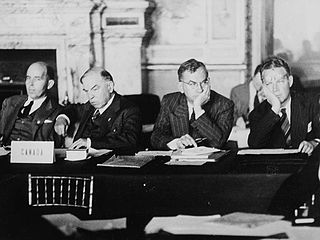
The Paris Peace Treaties were signed on 10 February 1947 following the end of World War II in 1945. The Paris Peace Conference lasted from 29 July until 15 October 1946. The victorious wartime Allied powers negotiated the details of peace treaties with Italy, Romania, Hungary, Bulgaria and Finland. The treaties allowed the defeated Axis powers to resume their responsibilities as sovereign states in international affairs and to qualify for membership in the United Nations.

The Allies, formally referred to as the United Nations from 1942, were an international military coalition formed during the Second World War (1939–1945) to oppose the Axis powers, led by Nazi Germany, Imperial Japan, and Fascist Italy. Its principal members by 1941 were the United Kingdom, United States, Soviet Union, and China.
World War II: Attempting to completely lift the Siege of Leningrad, the Soviet Red Army engages German troops and Spanish volunteers in the Battle of Krasny Bor.

World War II or the Second World War, often abbreviated as WWII or WW2, was a world war that lasted from 1939 to 1945. It involved the vast majority of the world's countries—including all of the great powers—forming two opposing military alliances: the Allies and the Axis powers. World War II was a total war that directly involved more than 100 million personnel from more than 30 countries.

The siege of Leningrad was a prolonged military blockade undertaken by the Axis powers against the Soviet city of Leningrad on the Eastern Front of World War II. Germany's Army Group North advanced from the south, while the German-allied Finnish army invaded from the north and completed the ring around the city.

The Workers' and Peasants' Red Army, often shortened to the Red Army, was the army and air force of the Russian Soviet Federative Socialist Republic and, after 1922, the Union of Soviet Socialist Republics. The army was established in January 1918. The Bolsheviks raised an army to oppose the military confederations of their adversaries during the Russian Civil War. Starting in February 1946, the Red Army, along with the Soviet Navy, embodied the main component of the Soviet Armed Forces; taking the official name of "Soviet Army", until its dissolution in 1991.

Nazi Germany was the German state between 1933 and 1945, when Adolf Hitler and the Nazi Party controlled the country, transforming it into a dictatorship. Under Hitler's rule, Germany quickly became a totalitarian state where nearly all aspects of life were controlled by the government. The Third Reich, meaning "Third Realm" or "Third Empire", alluded to the Nazi claim that Nazi Germany was the successor to the earlier Holy Roman Empire (800–1806) and German Empire (1871–1918). The Third Reich, which Hitler and the Nazis referred to as the Thousand-Year Reich, ended in May 1945 after just 12 years when the Allies defeated Germany, ending World War II in Europe.

Francoist Spain, or the Francoist dictatorship, was the period of Spanish history between 1939 and 1975, when Francisco Franco ruled Spain after the Spanish Civil War with the title Caudillo. After his death in 1975, Spain transitioned into a democracy. During this time period, Spain was officially known as the Spanish State.
The Battle of Krasny Bor was part of the Soviet offensive Operation Polyarnaya Zvezda in the Eastern Front of World War II. It called for a pincer attack near Leningrad to build on the success of Operation Iskra and completely lift the siege of Leningrad, in the process encircling a substantial part of the German 18th Army. The offensive near the town of Krasny Bor formed the western arm of the pincer. The Soviet offensive began on Wednesday, 10 February 1943, and produced noticeable gains on the first day but rapidly became a stalemate. The strong defense by the Spanish Blue Division and the German SS Polizei Division gave the German forces time to reinforce their positions. By February 13, the Soviet forces had stopped their offensive in this sector.
Puss Gets the Boot, the first Tom and Jerry cartoon, was released to theaters.

Puss Gets the Boot is a 1940 American animated short film and is the first short in what would become the Tom and Jerry cartoon series, though neither were yet referred to by these names. It was directed by William Hanna, Joseph Barbera and Rudolf Ising, and produced by Fred Quimby and Rudolf Ising. It was based on the Aesop's Fable, The Cat and the Mice. As was the practice of MGM shorts at the time, only Rudolf Ising is credited. It was released to theaters on February 10, 1940, by Metro-Goldwyn-Mayer.

Tom and Jerry is an American animated media franchise and series of comedy short films created in 1940 by William Hanna and Joseph Barbera. Best known for its 161 theatrical short films by Metro-Goldwyn-Mayer, the series centers on the rivalry between the titular characters of a cat named Tom and a mouse named Jerry. Many shorts also feature several recurring characters.
The Soviet Union begins mass deportations of Polish citizens from occupied eastern Poland to Siberia.

The Soviet Union, officially the Union of Soviet Socialist Republics (USSR), was a transcontinental country that spanned much of Eurasia from 1922 to 1991. A flagship communist state, it was nominally a federal union of fifteen national republics; in practice, both its government and its economy were highly centralized until its final years. It was a one-party state governed by the Communist Party of the Soviet Union, with the city of Moscow serving as its capital as well as that of its largest and most populous republic: the Russian SFSR. Other major cities included Leningrad, Kiev, Minsk, Tashkent, Alma-Ata, and Novosibirsk. It was the largest country in the world, covering over 22,402,200 square kilometres (8,649,500 sq mi) and spanning eleven time zones.

Seventeen days after the German invasion of Poland in 1939, which marked the beginning of the Second World War, the Soviet Union entered the eastern regions of Poland and annexed territories totalling 201,015 square kilometres (77,612 sq mi) with a population of 13,299,000. Inhabitants besides ethnic Poles included Belarusian and Ukrainian major population groups, and also Czechs, Lithuanians, Jews, and other minority groups.
Spanish Civil War: The Nationalists concluded their conquest of Catalonia and sealed the border with France.

The Spanish Civil War was a civil war in Spain fought from 1936 to 1939 between the Republicans and the Nationalists. Republicans were loyal to the left-leaning Popular Front government of the Second Spanish Republic, and consisted of various socialist, communist, separatist, anarchist, and republican parties, some of which had opposed the government in the pre-war period. The opposing Nationalists were an alliance of Falangists, monarchists, conservatives, and traditionalists led by a military junta among whom General Francisco Franco quickly achieved a preponderant role. Due to the international political climate at the time, the war had many facets and was variously viewed as class struggle, a religious struggle, a struggle between dictatorship and republican democracy, between revolution and counterrevolution, and between fascism and communism. According to Claude Bowers, U.S. ambassador to Spain during the war, it was the "dress rehearsal" for World War II. The Nationalists won the war, which ended in early 1939, and ruled Spain until Franco's death in November 1975.

Francoist Spain, or the Francoist dictatorship, was the period of Spanish history between 1939 and 1975, when Francisco Franco ruled Spain after the Spanish Civil War with the title Caudillo. After his death in 1975, Spain transitioned into a democracy. During this time period, Spain was officially known as the Spanish State.

The Catalonia Offensive was part of the Spanish Civil War. The Nationalist Army started the offensive on 23 December 1938 and rapidly conquered Republican-held Catalonia with Barcelona. Barcelona was captured on 26 January 1939. The Republican government headed for the French border. Thousands of people fleeing the Nationalists also crossed the frontier in the following month, to be placed in internment camps. Franco closed the border with France by 10 February 1939.
Spanish Civil War: The Nationalists conclude their conquest of Catalonia and seal the border with France.

The Spanish Civil War was a civil war in Spain fought from 1936 to 1939 between the Republicans and the Nationalists. Republicans were loyal to the left-leaning Popular Front government of the Second Spanish Republic, and consisted of various socialist, communist, separatist, anarchist, and republican parties, some of which had opposed the government in the pre-war period. The opposing Nationalists were an alliance of Falangists, monarchists, conservatives, and traditionalists led by a military junta among whom General Francisco Franco quickly achieved a preponderant role. Due to the international political climate at the time, the war had many facets and was variously viewed as class struggle, a religious struggle, a struggle between dictatorship and republican democracy, between revolution and counterrevolution, and between fascism and communism. According to Claude Bowers, U.S. ambassador to Spain during the war, it was the "dress rehearsal" for World War II. The Nationalists won the war, which ended in early 1939, and ruled Spain until Franco's death in November 1975.

Francoist Spain, or the Francoist dictatorship, was the period of Spanish history between 1939 and 1975, when Francisco Franco ruled Spain after the Spanish Civil War with the title Caudillo. After his death in 1975, Spain transitioned into a democracy. During this time period, Spain was officially known as the Spanish State.

The Catalonia Offensive was part of the Spanish Civil War. The Nationalist Army started the offensive on 23 December 1938 and rapidly conquered Republican-held Catalonia with Barcelona. Barcelona was captured on 26 January 1939. The Republican government headed for the French border. Thousands of people fleeing the Nationalists also crossed the frontier in the following month, to be placed in internment camps. Franco closed the border with France by 10 February 1939.
Second Italo-Abyssinian War: The Battle of Amba Aradam began, ending nine days later in a decisive tactical victory for Italy and the neutralisation of almost the entire Ethiopian army as a fighting force.

The Second Italo-Ethiopian War, also referred to as the Second Italo-Abyssinian War, was a war of aggression which was fought between Italy and Ethiopia from October 1935 to February 1937. In Ethiopia it is often referred to simply as the Italian Invasion, and in Italy as the Ethiopian War. It is seen as an example of the expansionist policy that characterized the Axis powers and the ineffectiveness of the League of Nations before the outbreak of the Second World War.
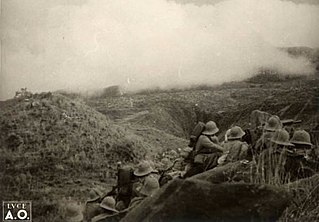
The Battle of Amba Aradam was a battle fought on the northern front of what was known as the Second Italo-Abyssinian War. This battle consisted of attacks and counter-attacks by Italian forces under Marshal of Italy Pietro Badoglio and Ethiopian forces under Ras Mulugeta Yeggazu. This battle was primarily fought in the area around Amba Aradam which included most of Enderta Province.
In military tactics, a tactical victory may refer to a victory that results in the completion of a tactical objective as part of an operation or a result in which the losses of the "defeated" outweigh those of the "victor" although the victorious force failed to meet its original objectives.
Second Italo-Abyssinian War: Italian troops launch the Battle of Amba Aradam against Ethiopian defenders.

The Second Italo-Ethiopian War, also referred to as the Second Italo-Abyssinian War, was a war of aggression which was fought between Italy and Ethiopia from October 1935 to February 1937. In Ethiopia it is often referred to simply as the Italian Invasion, and in Italy as the Ethiopian War. It is seen as an example of the expansionist policy that characterized the Axis powers and the ineffectiveness of the League of Nations before the outbreak of the Second World War.

The Kingdom of Italy was a state that existed from 1861, when Victor Emmanuel II of Sardinia was proclaimed King of Italy, until 1946, when civil discontent led to an institutional referendum to abandon the monarchy and form the modern Italian Republic. The state resulted from a decades-long process, the Risorgimento, of consolidating the different states of the Italian Peninsula into a single state. That process was influenced by the Savoy-led Kingdom of Sardinia, which can be considered Italy's legal predecessor state.

The Battle of Amba Aradam was a battle fought on the northern front of what was known as the Second Italo-Abyssinian War. This battle consisted of attacks and counter-attacks by Italian forces under Marshal of Italy Pietro Badoglio and Ethiopian forces under Ras Mulugeta Yeggazu. This battle was primarily fought in the area around Amba Aradam which included most of Enderta Province.

The Ethiopian Empire, also formerly known by the exonym Abyssinia, or just simply known as Ethiopia, was an empire that historically spanned the geographical area of present-day Ethiopia and Eritrea from the establishment of the Solomonic dynasty by Yekuno Amlak approximately in 1270 until the 1974 coup d'etat of Emperor Haile Selassie by the Derg. By 1896, the Empire incorporated other regions such as Hararghe, Gurage and Wolayita, and saw its largest expansion with the federation of Eritrea in 1952. Throughout much of its existence, it was surrounded by hostile forces in the African Horn; however, it managed to develop and preserve a kingdom based on its ancient form of Christianity.
In round 13 of a boxing match at New York City's Madison Square Garden, Primo Carnera knocks out Ernie Schaaf. Schaaf dies four days later.

Boxing is a combat sport in which two people, usually wearing protective gloves and other protective equipment such as hand wraps and mouthguards, throw punches at each other for a predetermined amount of time in a boxing ring.

Madison Square Garden was an indoor arena in New York City, the third bearing that name. Built in 1925 and closed in 1968, it was located on the west side of Eighth Avenue between 49th and 50th streets in Manhattan, on the site of the city's trolley-car barns. It was the first Garden that was not located near Madison Square. MSG III was the home of the New York Rangers of the National Hockey League and the New York Knicks of the National Basketball Association, and also hosted numerous boxing matches, the Millrose Games, concerts, and other events. In 1968 it was demolished and its role and name passed to the current Madison Square Garden, which stands at the site of the original Penn Station. One Worldwide Plaza was built on the arena's former 50th Street location.

Primo Carnera, nicknamed the Ambling Alp, was an Italian professional boxer and wrestler who reigned as the boxing World Heavyweight Champion from 29 June 1933 to 14 June 1934. He won more fights by knockout than any other heavyweight champion in boxing history.
Frederick Ernest Schaaf was a professional boxer who was a heavyweight contender in the 1930s but died after a bout.
The Việt Nam Quốc Dân Đảng launched the failed Yên Bái mutiny in the hope of ending French colonial rule in Vietnam.

The Việt Nam Quốc Dân Đảng, abbreviated VNQDĐ or Việt Quốc, was a nationalist and democratic socialist political party that sought independence from French colonial rule in Vietnam during the early 20th century. Its origins lie in a group of young Hanoi-based intellectuals who began publishing revolutionary material in the mid-1920s. In 1927, after the publishing house failed because of French harassment and censorship, the VNQDĐ was formed under the leadership of Nguyễn Thái Học. Modelling itself on the Kuomintang of Nationalist China the VNQDĐ gained a following among northerners, particularly teachers and intellectuals. The party, which was less successful among peasants and industrial workers, was organised in small clandestine cells.

The Yên Bái mutiny was an uprising of Vietnamese soldiers in the French colonial army on 10 February 1930 in collaboration with civilian supporters who were members of the Việt Nam Quốc Dân Đảng.

French Indochina, officially known as the Indochinese Union and after 1947 as the Indochinese Federation, was a grouping of French colonial territories in Southeast Asia until its demise in 1954. It comprised Cambodia, Laos, the Chinese territory of Guangzhouwan, and the Vietnamese regions of Tonkin in the north, Annam in the centre, and Cochinchina in the south. The capital for most of its history (1902–45) was Hanoi; Saigon was the capital from 1887 to 1902 and again from 1945 to 1954.
The Việt Nam Quốc Dân Đảng launches the failed Yên Bái mutiny in hope of overthrowing French protectorate over Vietnam.

The Việt Nam Quốc Dân Đảng, abbreviated VNQDĐ or Việt Quốc, was a nationalist and democratic socialist political party that sought independence from French colonial rule in Vietnam during the early 20th century. Its origins lie in a group of young Hanoi-based intellectuals who began publishing revolutionary material in the mid-1920s. In 1927, after the publishing house failed because of French harassment and censorship, the VNQDĐ was formed under the leadership of Nguyễn Thái Học. Modelling itself on the Kuomintang of Nationalist China the VNQDĐ gained a following among northerners, particularly teachers and intellectuals. The party, which was less successful among peasants and industrial workers, was organised in small clandestine cells.

The Yên Bái mutiny was an uprising of Vietnamese soldiers in the French colonial army on 10 February 1930 in collaboration with civilian supporters who were members of the Việt Nam Quốc Dân Đảng.

Annam, or Trung Kỳ (中圻), was a French protectorate and colony encompassing the territory of the Empire of Đại Nam in Central Vietnam. Before the protectorate's establishment, the name Annam was used in the West to refer to Vietnam as a whole; Vietnamese people were referred to as Annamites. The protectorate of Annam became a part of French Indochina in 1887, along with two other Vietnamese regions, Cochinchina in the South and Tonkin in the North. The region had a dual system of French and Vietnamese administration. The government of the Nguyễn Dynasty still nominally ruled Annam and Tonkin as the Empire of Đại Nam, with the emperor residing in Huế. In 1948, the protectorate was merged in the Provisional Central Government of Vietnam, which was replaced the next year by the newly established State of Vietnam. The region was divided between communist North Vietnam and anti-communist South Vietnam under the terms of the Geneva Accord of 1954.
Texas Tech University is founded as Texas Technological College in Lubbock, Texas.

Texas Tech University is a public research university in Lubbock, Texas. Established on February 10, 1923, and called Texas Technological College until 1969, it is the main institution of the five-institution Texas Tech University System. The university's student enrollment is the seventh-largest in Texas as of the Fall 2018 semester. As of fall 2020, there were 40,322 students enrolled at Texas Tech. With over 25% of its undergraduate student population identifying as Hispanic, Texas Tech University is a designated Hispanic-serving institution (HSI).

Lubbock is the 11th-most populous city in the U.S. state of Texas and the seat of government of Lubbock County. With a population of 257,141 in 2020, the city is also the 86th-most populous in the United States. The city is in the northwestern part of the state, a region known historically and geographically as the Llano Estacado, and ecologically is part of the southern end of the High Plains, lying at the economic center of the Lubbock metropolitan area, which has an estimated population of 327,424 in 2020.
Józef Haller de Hallenburg performs the symbolic wedding of Poland to the sea, celebrating restitution of Polish access to open sea.

Józef Haller von Hallenburg was a lieutenant general of the Polish Army, a legionary in the Polish Legions, harcmistrz, the president of the Polish Scouting and Guiding Association (ZHP), and a political and social activist. He was the cousin of Stanisław Haller.

Poland's Wedding to the Sea was a ceremony meant to symbolize restored Polish access to the Baltic Sea that was lost in 1793 by the Partitions of Poland. It was first performed on 10 February 1920 by General Józef Haller at Puck (Putzig). In the early spring of 1945, following the Polish-Soviet advance into Pomerania, a number of such ceremonies took place in several locations. The most famous 1945 Weddings to the Sea were performed by the soldiers of the Polish Army on 17 March 1945 in Mrzeżyno (Regamünde), and on 18 March in the newly-captured port of Kołobrzeg (Kolberg).
About 75% of the population in Zone I votes to join Denmark in the 1920 Schleswig plebiscites.

Denmark is a Nordic country in Northern Europe. It is the most populous and politically central constituent of the Kingdom of Denmark, a constitutionally unitary state that includes the autonomous territories of the Faroe Islands and Greenland in the North Atlantic Ocean. European Denmark is the southernmost of the Scandinavian countries, lying southwest of Sweden, south of Norway, and north of Germany.
The Schleswig plebiscites were two plebiscites, organized according to section XII, articles 100 to 115 of the Treaty of Versailles of 28 June 1919, in order to determine the future border between Denmark and Germany through the former Duchy of Schleswig. The process was monitored by a commission with representatives from France, the United Kingdom, Norway and Sweden.
The Inter-Allied Women's Conference opened as a counterpart to the Paris Peace Conference, marking the first time that women were allowed formal participation in an international treaty negotiation.

The Inter-Allied Women's Conference opened in Paris on 10 February 1919. It was convened parallel to the Paris Peace Conference to introduce women's issues to the peace process after the First World War. Leaders in the international women's suffrage movement had been denied the opportunity to participate in the official proceedings several times before being allowed to make a presentation before the Commission on International Labour Legislation. On 10 April, women were finally allowed to present a resolution to the League of Nations Commission. It covered the trafficking and sale of women and children, their political and suffrage status, and the transformation of education to include the human rights of all persons in each nation.

The Paris Peace Conference was the formal meeting in 1919 and 1920 of the victorious Allies after the end of World War I to set the peace terms for the defeated Central Powers. Dominated by the leaders of Britain, France, the United States and Italy, it resulted in five treaties that rearranged the maps of Europe and parts of Asia, Africa and the Pacific Islands, and also imposed financial penalties. Germany and the other losing nations had no voice in the Conference's deliberations; this gave rise to political resentments that lasted for decades.
The Royal Navy battleship HMS Dreadnought was launched, representing such a marked advance in naval technology that her name came to be associated with an entire generation of battleships.

The Royal Navy (RN) is the United Kingdom's naval warfare force. Although warships were used by English and Scottish kings from the early medieval period, the first major maritime engagements were fought in the Hundred Years' War against France. The modern Royal Navy traces its origins to the early 16th century; the oldest of the UK's armed services, it is consequently known as the Senior Service.

HMS Dreadnought was a Royal Navy battleship whose design revolutionised naval power. The ship's entry into service in 1906 represented such an advance in naval technology that her name came to be associated with an entire generation of battleships, the "dreadnoughts", as well as the class of ships named after her. Likewise, the generation of ships she made obsolete became known as "pre-dreadnoughts". Admiral Sir John "Jacky" Fisher, First Sea Lord of the Board of Admiralty, is credited as the father of Dreadnought. Shortly after he assumed office in 1904, he ordered design studies for a battleship armed solely with 12 in (305 mm) guns and a speed of 21 knots. He convened a "Committee on Designs" to evaluate the alternative designs and to assist in the detailed design work.

The dreadnought was the predominant type of battleship in the early 20th century. The first of the kind, the Royal Navy's HMS Dreadnought, had such an impact when launched in 1906 that similar battleships built after her were referred to as "dreadnoughts", and earlier battleships became known as pre-dreadnoughts. Her design had two revolutionary features: an "all-big-gun" armament scheme, with an unprecedented number of heavy-calibre guns, and steam turbine propulsion. As dreadnoughts became a crucial symbol of national power, the arrival of these new warships renewed the naval arms race between the United Kingdom and Germany. Dreadnought races sprang up around the world, including in South America, lasting up to the beginning of World War I. Successive designs increased rapidly in size and made use of improvements in armament, armour and propulsion throughout the dreadnought era. Within five years, new battleships outclassed Dreadnought herself. These more powerful vessels were known as "super-dreadnoughts". Most of the original dreadnoughts were scrapped after the end of World War I under the terms of the Washington Naval Treaty, but many of the newer super-dreadnoughts continued serving throughout World War II.
HMS Dreadnought, the first of a revolutionary new breed of battleships, is christened.

HMS Dreadnought was a Royal Navy battleship whose design revolutionised naval power. The ship's entry into service in 1906 represented such an advance in naval technology that her name came to be associated with an entire generation of battleships, the "dreadnoughts", as well as the class of ships named after her. Likewise, the generation of ships she made obsolete became known as "pre-dreadnoughts". Admiral Sir John "Jacky" Fisher, First Sea Lord of the Board of Admiralty, is credited as the father of Dreadnought. Shortly after he assumed office in 1904, he ordered design studies for a battleship armed solely with 12 in (305 mm) guns and a speed of 21 knots. He convened a "Committee on Designs" to evaluate the alternative designs and to assist in the detailed design work.

The dreadnought was the predominant type of battleship in the early 20th century. The first of the kind, the Royal Navy's HMS Dreadnought, had such an impact when launched in 1906 that similar battleships built after her were referred to as "dreadnoughts", and earlier battleships became known as pre-dreadnoughts. Her design had two revolutionary features: an "all-big-gun" armament scheme, with an unprecedented number of heavy-calibre guns, and steam turbine propulsion. As dreadnoughts became a crucial symbol of national power, the arrival of these new warships renewed the naval arms race between the United Kingdom and Germany. Dreadnought races sprang up around the world, including in South America, lasting up to the beginning of World War I. Successive designs increased rapidly in size and made use of improvements in armament, armour and propulsion throughout the dreadnought era. Within five years, new battleships outclassed Dreadnought herself. These more powerful vessels were known as "super-dreadnoughts". Most of the original dreadnoughts were scrapped after the end of World War I under the terms of the Washington Naval Treaty, but many of the newer super-dreadnoughts continued serving throughout World War II.
American Civil War: A Union naval flotilla destroyed the bulk of the Confederate Mosquito Fleet in the Battle of Elizabeth City on the Pasquotank River in North Carolina.

The American Civil War was a civil war in the United States. It was fought between the Union and the Confederacy, the latter formed by states that had seceded. The central cause of the war was the dispute over whether slavery would be permitted to expand into the western territories, leading to more slave states, or be prevented from doing so, which was widely believed would place slavery on a course of ultimate extinction.

The Union Navy was the United States Navy (USN) during the American Civil War, when it fought the Confederate States Navy (CSN). The term is sometimes used carelessly to include vessels of war used on the rivers of the interior while they were under the control of the United States Army, also called the Union Army.

The Confederate States Navy (CSN) was the naval branch of the Confederate States Armed Forces, established by an act of the Confederate States Congress on February 21, 1861. It was responsible for Confederate naval operations during the American Civil War against the United States's Union Navy.

The term Mosquito Fleet has had a variety of naval and commercial uses around the world.

The Battle of Elizabeth City of the American Civil War was fought in the immediate aftermath of the Battle of Roanoke Island. It took place on 10 February 1862, on the Pasquotank River near Elizabeth City, North Carolina. The participants were vessels of the U.S. Navy's North Atlantic Blockading Squadron, opposed by vessels of the Confederate Navy's Mosquito Fleet; the latter were supported by a shore-based battery of four guns at Cobb's Point, near the southeastern border of the town. The battle was a part of the campaign in North Carolina that was led by Major General Ambrose E. Burnside and known as the Burnside Expedition. The result was a Union victory, with Elizabeth City and its nearby waters in their possession, and the Confederate fleet captured, sunk, or dispersed.

The Pasquotank River is a coastal water-body in Northeastern North Carolina in the United States. Located between Camden and Pasquotank counties, the Pasquotank connects directly to the Albemarle Sound and is part of the Intracoastal Waterway via Elizabeth City.

North Carolina is a state in the Southeastern region of the United States. The state is the 28th largest and 9th-most populous of the United States. It is bordered by Virginia to the north, the Atlantic Ocean to the east, Georgia and South Carolina to the south, and Tennessee to the west. Raleigh is the state's capital and Charlotte is its largest city. The Charlotte metropolitan area, with a population of 2,595,027 in 2020, is the most-populous metropolitan area in North Carolina, the 21st-most populous in the United States, and the largest banking center in the nation after New York City. The Raleigh-Durham-Cary combined statistical area is the second-largest metropolitan area in the state and 32nd-most populous in the United States, with a population of 2,043,867 in 2020, and is home to the largest research park in the United States, Research Triangle Park.
American Civil War: A Union naval flotilla destroys the bulk of the Confederate Mosquito Fleet in the Battle of Elizabeth City on the Pasquotank River in North Carolina.

The American Civil War was a civil war in the United States. It was fought between the Union and the Confederacy, the latter formed by states that had seceded. The central cause of the war was the dispute over whether slavery would be permitted to expand into the western territories, leading to more slave states, or be prevented from doing so, which was widely believed would place slavery on a course of ultimate extinction.

During the American Civil War, the Union, also known as the North, referred to the United States led by President Abraham Lincoln. It was opposed by the secessionist Confederate States of America (CSA), informally called "the Confederacy" or "the South". The Union is named after its declared goal of preserving the United States as a constitutional union. "Union" is used in the U.S. Constitution to refer to the founding formation of the people, and to the states in union. In the context of the Civil War, it has also often been used as a synonym for "the northern states loyal to the United States government;" in this meaning, the Union consisted of 20 free states and five border states.

The term Mosquito Fleet has had a variety of naval and commercial uses around the world.

The Battle of Elizabeth City of the American Civil War was fought in the immediate aftermath of the Battle of Roanoke Island. It took place on 10 February 1862, on the Pasquotank River near Elizabeth City, North Carolina. The participants were vessels of the U.S. Navy's North Atlantic Blockading Squadron, opposed by vessels of the Confederate Navy's Mosquito Fleet; the latter were supported by a shore-based battery of four guns at Cobb's Point, near the southeastern border of the town. The battle was a part of the campaign in North Carolina that was led by Major General Ambrose E. Burnside and known as the Burnside Expedition. The result was a Union victory, with Elizabeth City and its nearby waters in their possession, and the Confederate fleet captured, sunk, or dispersed.

The Pasquotank River is a coastal water-body in Northeastern North Carolina in the United States. Located between Camden and Pasquotank counties, the Pasquotank connects directly to the Albemarle Sound and is part of the Intracoastal Waterway via Elizabeth City.

North Carolina is a state in the Southeastern region of the United States. The state is the 28th largest and 9th-most populous of the United States. It is bordered by Virginia to the north, the Atlantic Ocean to the east, Georgia and South Carolina to the south, and Tennessee to the west. Raleigh is the state's capital and Charlotte is its largest city. The Charlotte metropolitan area, with a population of 2,595,027 in 2020, is the most-populous metropolitan area in North Carolina, the 21st-most populous in the United States, and the largest banking center in the nation after New York City. The Raleigh-Durham-Cary combined statistical area is the second-largest metropolitan area in the state and 32nd-most populous in the United States, with a population of 2,043,867 in 2020, and is home to the largest research park in the United States, Research Triangle Park.
Jefferson Davis is notified by telegraph that he has been chosen as provisional President of the Confederate States of America.

Jefferson F. Davis was an American politician who was the president of the Confederate States from 1861 to 1865. He represented Mississippi in the United States Senate and the House of Representatives as a member of the Democratic Party before the American Civil War. He had previously served as the United States Secretary of War from 1853 to 1857 under President Franklin Pierce.
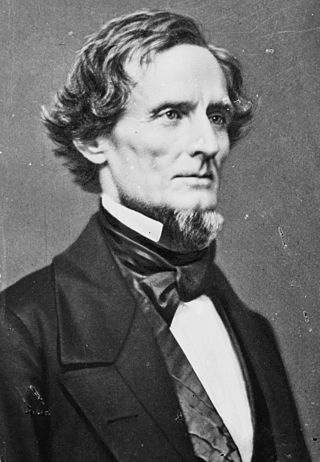
The president of the Confederate States was the head of state and head of government of the Confederate States. The president was the chief executive of the federal government and was the commander-in-chief of the Confederate Army and the Confederate Navy.
First Anglo-Sikh War: Battle of Sobraon: British defeat Sikhs in the final battle of the war.

The First Anglo-Sikh War was fought between the Sikh Empire and the British East India Company in 1845 and 1846 in and around the Ferozepur district of Punjab. It resulted in defeat and partial subjugation of the Sikh empire and cession of Jammu and Kashmir as a separate princely state under British suzerainty.

The Battle of Sobraon was fought on 10 February 1846, between the forces of the East India Company and the Sikh Khalsa Army, the army of the Sikh Empire of the Punjab. The Sikhs were completely defeated, making this the decisive battle of the First Anglo-Sikh War.
Prince Albert of Saxe-Coburg and Gotha and Queen Victoria married at the Chapel Royal in St James's Palace, London, with Albert being granted the title prince consort.

Prince Albert of Saxe-Coburg and Gotha was the consort of Queen Victoria from their marriage on 10 February 1840 until his death in 1861.

Saxe-Coburg and Gotha, or Saxe-Coburg-Gotha, was an Ernestine, Thuringian duchy ruled by a branch of the House of Wettin, consisting of territories in the present-day states of Thuringia and Bavaria in Germany. It lasted from 1826 to 1918. In November 1918, Charles Edward, Duke of Saxe-Coburg and Gotha, was forced to abdicate. In 1920, the northern part of the duchy was merged with six other Thuringian free states to form the Free State of Thuringia: Saxe-Weimar-Eisenach, Saxe-Altenburg and Saxe-Meiningen, Schwarzburg-Rudolstadt and Schwarzburg-Sondershausen, as well as the People's State of Reuss. The southern part of the duchy, as southernmost of the Thuringian states, was the only one which, after a referendum, became part of the Free State of Bavaria.

Victoria was Queen of the United Kingdom of Great Britain and Ireland from 20 June 1837 until her death in 1901. Her reign of 63 years and seven months was longer than that of any previous British monarch and is known as the Victorian era. It was a period of industrial, political, scientific, and military change within the United Kingdom, and was marked by a great expansion of the British Empire. In 1876, the British Parliament voted to grant her the additional title of Empress of India.
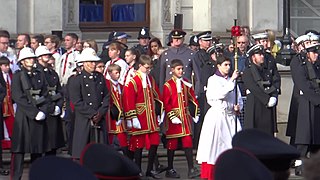
The Chapel Royal is an establishment in the Royal Household serving the spiritual needs of the sovereign and the British Royal Family. Historically it was a body of priests and singers that travelled with the monarch. The term is now also applied to the chapels within royal palaces, most notably at Hampton Court and St James's Palace, and other chapels within the Commonwealth designated as such by the monarch. Within the Church of England, some of these royal chapels may also be referred to as Royal Peculiars, an ecclesiastical jurisdiction of the monarch. The Dean of His Majesty's Chapels Royal is a royal household office that in modern times is usually held by the Bishop of London.

St James's Palace is the most senior royal palace in London, the capital of the United Kingdom. The palace gives its name to the Court of St James's, which is the monarch's royal court, and is located in the City of Westminster in London. Although no longer the principal residence of the monarch, it is the ceremonial meeting place of the Accession Council, the office of the Marshal of the Diplomatic Corps, as well as the London residence of several members of the royal family.

A royal consort is the spouse of a reigning king or queen. Consorts of monarchs of the United Kingdom and its predecessors have no constitutional status or power but many have had significant influence. There have been 11 royal consorts since Britain's union of the crowns in 1707, eight women, and three men.
Queen Victoria of the United Kingdom marries Prince Albert of Saxe-Coburg-Gotha.

Victoria was Queen of the United Kingdom of Great Britain and Ireland from 20 June 1837 until her death in 1901. Her reign of 63 years and seven months was longer than that of any previous British monarch and is known as the Victorian era. It was a period of industrial, political, scientific, and military change within the United Kingdom, and was marked by a great expansion of the British Empire. In 1876, the British Parliament voted to grant her the additional title of Empress of India.

Prince Albert of Saxe-Coburg and Gotha was the consort of Queen Victoria from their marriage on 10 February 1840 until his death in 1861.
War of the Sixth Coalition: A French army led by Napoleon effectively destroyed a small Russian corps commanded by Zakhar Dmitrievich Olsufiev.
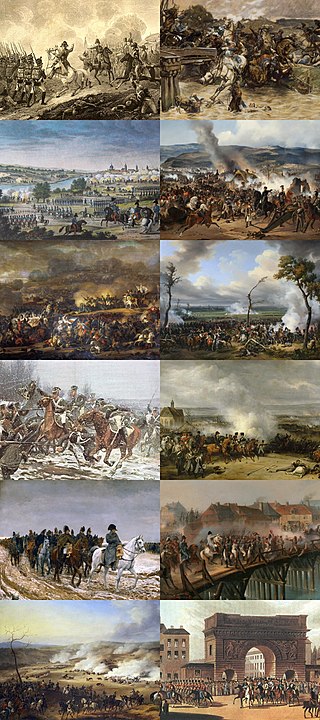
In the War of the Sixth Coalition, sometimes known in Germany as the Wars of Liberation, a coalition of Austria, Prussia, Russia, Spain, the United Kingdom, Portugal, Sweden, and a number of German States defeated France and drove Napoleon into exile on Elba. After the disastrous French invasion of Russia of 1812 in which they had been forced to support France, Prussia and Austria joined Russia, the United Kingdom, Sweden, and Portugal, and the rebels in Spain who were already at war with France.

Napoleon Bonaparte, later known by his regnal name Napoleon I, was a French military commander and political leader who rose to prominence during the French Revolution and led successful campaigns during the Revolutionary Wars. He was the de facto leader of the French Republic as First Consul from 1799 to 1804, then Emperor of the French from 1804 until 1814 and again in 1815. Napoleon's political and cultural legacy endures to this day, as a highly celebrated and controversial leader. He initiated many liberal reforms that have persisted in society, and is considered one of the greatest military commanders in history, but between three and six million civilians and soldiers perished in what became known as the Napoleonic Wars.

The Battle of Champaubert was the opening engagement of the Six Days' Campaign. It was fought between a French army led by Emperor Napoleon and a small Russian corps commanded by Lieutenant General Count Zakhar Dmitrievich Olsufiev. After putting up a good fight, the Russian formation was destroyed; the survivors escaped into the woods while Olsufiev became a French prisoner. Champaubert is located in France, 46 kilometres (29 mi) west of Châlons-en-Champagne and 69 kilometres (43 mi) east of Meaux.

Zakhar Dmitrievich Olsufiev was a Russian infantry Lieutenant General during the reigns of tsars Paul I and Alexander I.
Napoleonic Wars: The Battle of Champaubert ends in French victory over the Russians and the Prussians.

The Napoleonic Wars (1803–1815) were a series of major global conflicts pitting the French Empire and its allies, led by Napoleon I, against a fluctuating array of European states formed into various coalitions. It produced a period of French domination over most of continental Europe. The wars stemmed from the unresolved disputes associated with the French Revolution and the French Revolutionary Wars consisting of the War of the First Coalition (1792–1797) and the War of the Second Coalition (1798–1802). The Napoleonic Wars are often described as five conflicts, each termed after the coalition that fought Napoleon: the Third Coalition (1803–1806), the Fourth (1806–1807), the Fifth (1809), the Sixth (1813–1814), and the Seventh (1815) plus the Peninsular War (1807–1814) and the French invasion of Russia (1812).

The Battle of Champaubert was the opening engagement of the Six Days' Campaign. It was fought between a French army led by Emperor Napoleon and a small Russian corps commanded by Lieutenant General Count Zakhar Dmitrievich Olsufiev. After putting up a good fight, the Russian formation was destroyed; the survivors escaped into the woods while Olsufiev became a French prisoner. Champaubert is located in France, 46 kilometres (29 mi) west of Châlons-en-Champagne and 69 kilometres (43 mi) east of Meaux.

The Russian Empire was the final period of the Russian monarchy from 1721 to 1917, ruling across large parts of Eurasia. It succeeded the Tsardom of Russia following the Treaty of Nystad, which ended the Great Northern War. The rise of the Russian Empire coincided with the decline of neighbouring rival powers: the Swedish Empire, the Polish–Lithuanian Commonwealth, Qajar Iran, the Ottoman Empire, and Qing China. It also held colonies in North America between 1799 and 1867. Covering an area of approximately 22,800,000 square kilometres (8,800,000 sq mi), it remains the third-largest empire in history, surpassed only by the British Empire and the Mongol Empire; it ruled over a population of 125.6 million people per the 1897 Russian census, which was the only census carried out during the entire imperial period. Owing to its geographic extent across three continents at its peak, it featured great ethnic, linguistic, religious, and economic diversity.
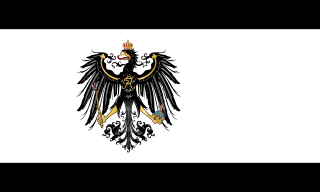
The Kingdom of Prussia was a German kingdom that constituted the state of Prussia between 1701 and 1918. It was the driving force behind the unification of Germany in 1871 and was the leading state of the German Empire until its dissolution in 1918. Although it took its name from the region called Prussia, it was based in the Margraviate of Brandenburg. Its capital was Berlin.
Britain, France, and Spain signed the Treaty of Paris to end the Seven Years' War, significantly reducing the size of the French colonial empire while at the same time marking the beginning of an extensive period of British dominance outside of Europe.

The Treaty of Paris, also known as the Treaty of 1763, was signed on 10 February 1763 by the kingdoms of Great Britain, France and Spain, with Portugal in agreement, after Great Britain and Prussia's victory over France and Spain during the Seven Years' War.

The Seven Years' War (1756–1763) was a global conflict that involved most of the European Great Powers, and was fought primarily in Europe, the Americas, and Asia-Pacific. Other concurrent conflicts include the French and Indian War (1754–1763), the Carnatic Wars and the Anglo-Spanish War (1762–1763). The opposing alliances were led by Great Britain and France respectively, both seeking to establish global pre-eminence at the expense of the other. Along with Spain, France fought Britain both in Europe and overseas with land-based armies and naval forces, while Britain's ally Prussia sought territorial expansion in Europe and consolidation of its power. Long-standing colonial rivalries pitting Britain against France and Spain in North America and the West Indies were fought on a grand scale with consequential results. Prussia sought greater influence in the German states, while Austria wanted to regain Silesia, captured by Prussia in the previous war, and to contain Prussian influence.

The French colonial empire comprised the overseas colonies, protectorates and mandate territories that came under French rule from the 16th century onward. A distinction is generally made between the "First French Colonial Empire", that existed until 1814, by which time most of it had been lost or sold, and the "Second French Colonial Empire", which began with the conquest of Algiers in 1830. At its apex between the two world wars, the second French colonial empire was the second-largest colonial empire in the world behind the British Empire.
French and Indian War: The Treaty of Paris ends the war and France cedes Quebec to Great Britain.

The French and Indian War (1754–1763) was a theater of the Seven Years' War, which pitted the North American colonies of the British Empire against those of the French, each side being supported by various Native American tribes. At the start of the war, the French colonies had a population of roughly 60,000 settlers, compared with 2 million in the British colonies. The outnumbered French particularly depended on their native allies.

The Treaty of Paris, also known as the Treaty of 1763, was signed on 10 February 1763 by the kingdoms of Great Britain, France and Spain, with Portugal in agreement, after Great Britain and Prussia's victory over France and Spain during the Seven Years' War.

Quebec is one of the thirteen provinces and territories of Canada. It is the largest province by area and the second-largest by population. Much of the population lives in urban areas along the St. Lawrence River, between the most populous city, Montreal, and the provincial capital, Quebec City. Quebec is the home of the Québécois nation. Located in Central Canada, the province shares land borders with Ontario to the west, Newfoundland and Labrador to the northeast, New Brunswick to the southeast, and a coastal border with Nunavut; in the south it borders Maine, New Hampshire, Vermont, and New York in the United States.
Huilliches in Chile's Chiloé Archipelago rose up against Spanish encomenderos as vengeance for perceived injustices.

The Huilliche [wi.ˈʝi.tʃe], Huiliche or Huilliche-Mapuche are the southern partiality of the Mapuche macroethnic group of Chile. Located in the Zona Sur, they inhabit both Futahuillimapu and, as the Cunco subgroup, the north half of Chiloé Island. The Huilliche are the principal indigenous people of those regions. According to Ricardo E. Latcham the term Huilliche started to be used in Spanish after the second founding of Valdivia in 1645, adopting the usage of the Mapuches of Araucanía for the southern Mapuche tribes. Huilliche means 'southerners' A genetic study showed significant affinities between Huilliches and indigenous peoples east of the Andes, which suggests but does not prove a partial origin in present-day Argentina.

The Chiloé Archipelago is a group of islands lying off the coast of Chile, in the Los Lagos Region. It is separated from mainland Chile by the Chacao Channel in the north, the Sea of Chiloé in the east and the Gulf of Corcovado in the southeast. All islands except the Desertores Islands form Chiloé Province. The main island is Chiloé Island. Of roughly rectangular shape, the southwestern half of this island is a wilderness of contiguous forests, wetlands and, in some places, mountains. The landscape of the northeastern sectors of Chiloé Island and the islands to the east is dominated by rolling hills, with a mosaic of pastures, forests and cultivated fields.
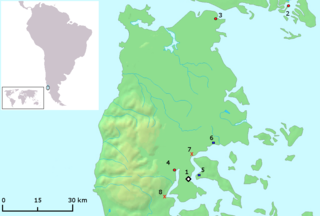
The Huilliche uprising of 1712 was an indigenous uprising against the Spanish encomenderos of the Chiloé Archipelago, which was then a part of the Captaincy General of Chile. The rebellion took place in the central part of the archipelago.

The encomienda was a Spanish labour system that rewarded conquerors with the labour of conquered non-Christian peoples. The labourers, in theory, were provided with benefits by the conquerors for whom they laboured, including military protection and education. The encomienda was first established in Spain following the Christian conquest of Moorish territories, and it was applied on a much larger scale during the Spanish colonization of the Americas and the Spanish Philippines. Conquered peoples were considered vassals of the Spanish monarch. The Crown awarded an encomienda as a grant to a particular individual. In the conquest era of the early sixteenth century, the grants were considered to be a monopoly on the labour of particular groups of indigenous peoples, held in perpetuity by the grant holder, called the encomendero; following the New Laws of 1542, upon the death of the encomendero, the encomienda ended and was replaced by the repartimiento.
Huilliches in Chiloé rebel against Spanish encomenderos.

The Huilliche uprising of 1712 was an indigenous uprising against the Spanish encomenderos of the Chiloé Archipelago, which was then a part of the Captaincy General of Chile. The rebellion took place in the central part of the archipelago.

The encomienda was a Spanish labour system that rewarded conquerors with the labour of conquered non-Christian peoples. The labourers, in theory, were provided with benefits by the conquerors for whom they laboured, including military protection and education. The encomienda was first established in Spain following the Christian conquest of Moorish territories, and it was applied on a much larger scale during the Spanish colonization of the Americas and the Spanish Philippines. Conquered peoples were considered vassals of the Spanish monarch. The Crown awarded an encomienda as a grant to a particular individual. In the conquest era of the early sixteenth century, the grants were considered to be a monopoly on the labour of particular groups of indigenous peoples, held in perpetuity by the grant holder, called the encomendero; following the New Laws of 1542, upon the death of the encomendero, the encomienda ended and was replaced by the repartimiento.
Lord Darnley, second husband of Mary, Queen of Scots, is found strangled following an explosion at the Kirk o' Field house in Edinburgh, Scotland, a suspected assassination.

Henry Stuart, Lord Darnley, was an English nobleman who was the second husband of Mary, Queen of Scots, and the father of James VI of Scotland and I of England. Through his parents, he had claims to both the Scottish and English thrones, and from his marriage in 1565 he was king consort of Scotland. Less than a year after the birth of his son, Darnley was murdered at Kirk o' Field in 1567. Many contemporary narratives describing his life and death refer to him as simply Lord Darnley, his title as heir apparent to the Earldom of Lennox.

Mary, Queen of Scots, also known as Mary Stuart or Mary I of Scotland, was Queen of Scotland from 14 December 1542 until her forced abdication in 1567.

The Collegiate Church of St Mary in the Fields was a pre-Reformation collegiate church in Edinburgh, Scotland. Likely founded in the 13th century and secularised at the Reformation, the church's site is now covered by Old College.

Edinburgh is the capital city of Scotland and one of its 32 council areas. Historically part of the county of Midlothian, it is located in Lothian on the southern shore of the Firth of Forth. Edinburgh is Scotland's second-most populous city, after Glasgow, and the seventh-most populous city in the United Kingdom.
Vasco da Gama sets sail from Lisbon, Portugal, on his second voyage to India.

Vasco da Gama, 1st Count of Vidigueira, was a Portuguese explorer and the first European to reach India by sea.
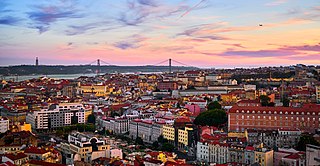
Lisbon is the capital and largest city of Portugal, with an estimated population of 544,851 within its administrative limits in an area of 100.05 km2. Lisbon's urban area extends beyond the city's administrative limits with a population of around 2.7 million people, being the 11th-most populous urban area in the European Union. About 3 million people live in the Lisbon metropolitan area, making it the third largest metropolitan area in the Iberian Peninsula, after Madrid and Barcelona. It represents approximately 27% of the country's population. It is mainland Europe's westernmost capital city and the only one along the Atlantic coast. Lisbon lies in the western Iberian Peninsula on the Atlantic Ocean and the River Tagus. The westernmost portions of its metro area, the Portuguese Riviera, form the westernmost point of Continental Europe, culminating at Cabo da Roca.
The 4th Portuguese India Armada was assembled in 1502 on the order of King Manuel I of Portugal and placed under the command of D. Vasco da Gama. It was Gama's second trip to India. The fourth of some thirteen Portuguese India Armadas, it was designed as a punitive expedition, targeting Calicut, to avenge the travails of the 2nd Armada and the massacre of the Portuguese factory in 1500. A feeling of vengeance drove the expedition.
A tavern dispute between University of Oxford students and townspeople became a riot that left about 90 people dead.
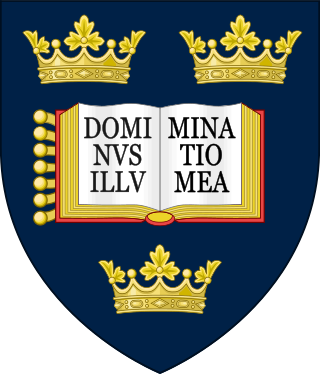
The University of Oxford is a collegiate research university in Oxford, England. There is evidence of teaching as early as 1096, making it the oldest university in the English-speaking world and the world's second-oldest university in continuous operation. It grew rapidly from 1167 when Henry II banned English students from attending the University of Paris. After disputes between students and Oxford townsfolk in 1209, some academics fled north-east to Cambridge where they established what became the University of Cambridge. The two English ancient universities share many common features and are jointly referred to as Oxbridge. Both are ranked among the most prestigious universities in the world.
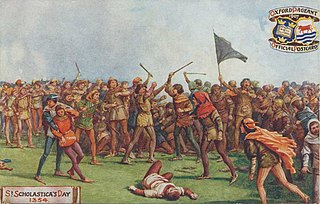
The St Scholastica Day riot took place in Oxford, England, on 10 February 1355, Saint Scholastica's Day. The disturbance began when two students from the University of Oxford complained about the quality of wine served to them in the Swindlestock Tavern, which stood on Carfax, in the centre of the town. The students quarrelled with the taverner; the argument quickly escalated to blows. The inn's customers joined in on both sides, and the resulting melee turned into a riot. The violence started by the bar brawl continued over three days, with armed gangs coming in from the countryside to assist the townspeople. University halls and students' accommodation were raided and the inhabitants murdered; there were some reports of clerics being scalped. Around 30 townsfolk were killed, as were up to 63 members of the university.
The St Scholastica Day riot breaks out in Oxford, England, leaving 63 scholars and perhaps 30 locals dead in two days.

The St Scholastica Day riot took place in Oxford, England, on 10 February 1355, Saint Scholastica's Day. The disturbance began when two students from the University of Oxford complained about the quality of wine served to them in the Swindlestock Tavern, which stood on Carfax, in the centre of the town. The students quarrelled with the taverner; the argument quickly escalated to blows. The inn's customers joined in on both sides, and the resulting melee turned into a riot. The violence started by the bar brawl continued over three days, with armed gangs coming in from the countryside to assist the townspeople. University halls and students' accommodation were raided and the inhabitants murdered; there were some reports of clerics being scalped. Around 30 townsfolk were killed, as were up to 63 members of the university.

Oxford is a city in England. It is the county town and only city of Oxfordshire. In 2020, its population was estimated at 151,584. It is 56 miles (90 km) north-west of London, 64 miles (103 km) south-east of Birmingham and 61 miles (98 km) north-east of Bristol. The city is home to the University of Oxford, the oldest university in the English-speaking world; it has buildings in every style of English architecture since late Anglo-Saxon. Oxford's industries include motor manufacturing, education, publishing, information technology and science.
In front of the high altar of Greyfriars Church in Dumfries, Robert the Bruce murders John Comyn, sparking the revolution in the Wars of Scottish Independence.

Dumfries is a market town and former royal burgh within the Dumfries and Galloway council area of Scotland. It is located near the mouth of the River Nith into the Solway Firth about 25 miles (40 km) by road from the Anglo-Scottish border and just 15 miles (24 km) away from Cumbria by air. Dumfries is the county town of the historic county of Dumfriesshire.

Robert I, popularly known as Robert the Bruce, was King of Scots from 1306 to his death in 1329. One of the most renowned warriors of his generation, Robert eventually led Scotland during the First War of Scottish Independence against England. He fought successfully during his reign to regain Scotland's place as an independent kingdom and is now revered in Scotland as a national hero.
John Comyn III of Badenoch, nicknamed the Red, was a leading Scottish baron and magnate who played an important role in the First War of Scottish Independence. He served as Guardian of Scotland after the forced abdication of his uncle, King John Balliol, in 1296, and for a time commanded the defence of Scotland against English attacks. Comyn was stabbed to death by Robert the Bruce before the altar at the church of the Greyfriars at Dumfries.

The Wars of Scottish Independence were a series of military campaigns fought between the Kingdom of Scotland and the Kingdom of England in the late 13th and early 14th centuries.
Mongol invasions: Baghdad falls to the Mongols, bringing the Islamic Golden Age to an end.

The Mongol invasions and conquests took place during the 13th and 14th centuries, creating history's largest contiguous empire: the Mongol Empire (1206-1368), which by 1300 covered large parts of Eurasia. Historians regard the Mongol devastation as one of the deadliest episodes in history. In addition, Mongol expeditions may have spread the bubonic plague across much of Eurasia, helping to spark the Black Death of the 14th century.

The siege of Baghdad was a siege that took place in Baghdad in 1258, lasting for 13 days from January 29, 1258 until February 10, 1258. The siege, laid by Ilkhanate Mongol forces and allied troops, involved the investment, capture, and sack of Baghdad, which was the capital of the Abbasid Caliphate at that time. The Mongols were under the command of Hulagu Khan, brother of the khagan Möngke Khan, who had intended to further extend his rule into Mesopotamia but not to directly overthrow the Caliphate. Möngke, however, had instructed Hulagu to attack Baghdad if the Caliph Al-Musta'sim refused Mongol demands for his continued submission to the khagan and the payment of tribute in the form of military support for Mongol forces in Persia.

The Islamic Golden Age was a period of cultural, economic, and scientific flourishing in the history of Islam, traditionally dated from the 8th century to the 14th century. This period is traditionally understood to have begun during the reign of the Abbasid caliph Harun al-Rashid with the inauguration of the House of Wisdom in Baghdad, the world's largest city by then, where Muslim scholars and polymaths from various parts of the world with different cultural backgrounds were mandated to gather and translate all of the known world's classical knowledge into Aramaic and Arabic.
Olsen Filipaina, New Zealand rugby league player (b. 1957) deaths
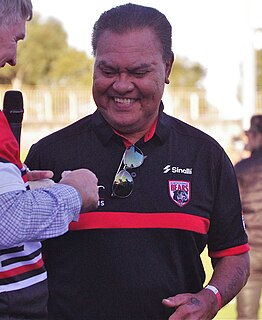
Olsen Orekewa Filipaina was a professional rugby league footballer who represented both New Zealand and Western Samoa. He played for the Balmain Tigers, Eastern Suburbs, and North Sydney Bears during his New South Wales Rugby League (NSWRL) premiership career from 1980 to 1987.
Larry Flynt, American publisher (b. 1942) deaths

Larry Claxton Flynt Jr. was an American publisher and the president of Larry Flynt Publications (LFP). LFP mainly produces pornographic magazines, such as Hustler, pornographic videos, and three pornographic television channels named Hustler TV. Flynt fought several high-profile legal battles involving the First Amendment, and unsuccessfully ran for public office. He was paralyzed from the waist down due to injuries sustained in a 1978 assassination attempt by serial killer Joseph Paul Franklin. In 2003, Arena magazine listed him at No. 1 on the "50 Powerful People in Porn" list.
Carmen Argenziano, American actor (b. 1943) deaths

Carmen Antimo Argenziano was an American actor who appeared in over 73 movies and around 100 television movies or episodes. He was best known for playing Jacob Carter on Stargate SG-1. He had recurring roles on Booker, L.A. Law, Melrose Place, and The Young and the Restless, as well as minor roles in The Godfather Part II, Angels & Demons, and The Accused.
Jan-Michael Vincent, American actor (b. 1944) deaths

Jan-Michael Vincent was an American actor known for portraying helicopter pilot Stringfellow Hawke in the TV series Airwolf (1984–1987) and the protagonist, Matt Johnson, in the 1978 film Big Wednesday. He also starred as Byron Henry in The Winds of War.
Mike Ilitch, American businessman (b. 1929) deaths

Michael Ilitch Sr. was an American entrepreneur, founder and owner of the international fast food franchise Little Caesars Pizza. He owned the Detroit Red Wings of the National Hockey League and Detroit Tigers of Major League Baseball.
Fatima Surayya Bajia, Indian-Pakistani author and playwright (b. 1930) deaths
Fatima Surayya Bajia was an Urdu novelist, playwright and drama writer from Pakistan. She was awarded various awards at home and abroad including Japan's highest civil award in recognition of her works. Bajia remained Advisor to the Chief Minister of Sindh province in Pakistan, and was a member of the managing committee of the Arts Council of Pakistan. She died on 10 February 2016 in Karachi, aged 85.
Naseer Aruri, Palestinian scholar and activist (b. 1934) deaths

Naseer H. Aruri was an American scholar-activist and expert on Middle East politics, U.S. foreign policy in the Middle East and human rights. Aruri was Chancellor Professor (Emeritus) of Political Science, having served on the faculty of the University of Massachusetts-Dartmouth from 1965-1998. In 1993, he was the recipient of the College of Arts and Sciences “Distinguished Research Award”. Aruri’s papers have been preserved and are on display at the Claire T. Carney Library Archives and Special Collections at UMASS-Dartmouth.
Karl Josef Becker, German cardinal and theologian (b. 1928) deaths

Karl Josef Becker S.J. was a German Catholic theologian and consultor for the Congregation for the Doctrine of the Faith since 15 September 1977. He taught at the Pontifical Gregorian University in Rome.
Deng Liqun, Chinese theorist and politician (b. 1915) deaths

Deng Liqun was a Chinese politician and theorist who was one of the leading figures of the Chinese Communist Party (CCP) during the 1980s, most well known for his involvement with the party's propaganda work. Deng was born in Guidong County, Hunan province, and joined the CCP in 1936. He came from an intellectual family and joined the party out of intellectual commitment. He was often referred to as "Little Deng", to be distinguished from Deng Xiaoping, the "Old Deng".
Stuart Hall, Jamaican-English sociologist and theorist (b. 1932) deaths
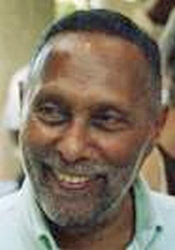
Stuart Henry McPhail Hall was a Jamaican-born British Marxist sociologist, cultural theorist, and political activist. Hall, along with Richard Hoggart and Raymond Williams, was one of the founding figures of the school of thought that is now known as British Cultural Studies or the Birmingham School of Cultural Studies.
Shirley Temple, American actress and diplomat (b. 1928) deaths

Shirley Temple Black was an American actress, singer, dancer, and diplomat who was Hollywood's number one box-office draw as a child actress from 1934 to 1938. Later, she was named United States ambassador to Ghana and Czechoslovakia, and also served as Chief of Protocol of the United States.
W. Watts Biggers, American author, screenwriter, and animator (b. 1927) deaths

William Watts "Buck" Biggers was an American novelist and co-creator of the long-running animated television series Underdog.
David Hartman, American-Israeli rabbi and philosopher, founded the Shalom Hartman Institute (b. 1931) deaths

David Hartman was an American-Israeli leader and philosopher of contemporary Judaism, founder of the Shalom Hartman Institute in Jerusalem, Israel, and a Jewish author.
Shalom Hartman Institute is a Jewish research and education institute based in Jerusalem, that offers pluralistic Jewish thought and education to scholars, rabbis, educators, and Jewish community leaders in Israel and North America. The institute's goal is to strengthen Jewish peoplehood, identity and pluralism, enhance the Jewish and democratic character of Israel, and ensure that Judaism is a compelling force for good in the 21st century.
Lloyd Morrison, New Zealand banker and businessman, founded H. R. L. Morrison & Co (b. 1957) deaths

Hugh Richmond Lloyd Morrison was a Wellington, New Zealand-based investment banker and entrepreneur. He founded H.R.L. Morrison & Co in 1988, and Morrison & Co launched the infrastructure company Infratil in 1994.

H.R.L. Morrison & Co is a specialist alternative asset manager focusing primarily on infrastructure, private equity and property investment with offices in New Zealand, Australia, United Kingdom, United States, Singapore and Hong Kong.
Jeffrey Zaslow, American journalist and author (b. 1958) deaths

Jeffrey Lloyd Zaslow was an American author and journalist and a columnist for The Wall Street Journal.
Trevor Bailey, English cricketer and journalist (b. 1923) deaths

Trevor Edward Bailey was an England Test cricketer, cricket writer and broadcaster.
Fred Schaus, American basketball player and coach (b. 1925) deaths
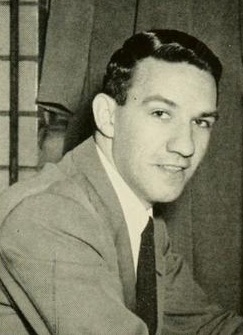
Frederick Appleton Schaus was an American basketball player, head coach and athletic director for the West Virginia University Mountaineers, player for the National Basketball Association's Fort Wayne Pistons and New York Knicks, general manager and head coach for the Los Angeles Lakers, head coach of Purdue University basketball, and a member of the NCAA Basketball Committee. He was born in Newark, Ohio.
Charles Wilson, American lieutenant and politician (b. 1933) deaths
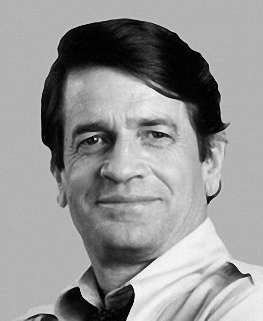
Charles Nesbitt Wilson was a United States naval officer and former 12-term Democratic United States Representative from Texas's 2nd congressional district. Wilson is best known for leading Congress into supporting Operation Cyclone, the largest-ever Central Intelligence Agency (CIA) covert operation, which during the Carter and Reagan administrations supplied military equipment to the Afghan Mujahideen during the Soviet–Afghan War. His behind-the-scenes campaign was the subject of the non-fiction book Charlie Wilson's War: The Extraordinary Story of the Largest Covert Operation in History by George Crile III and the subsequent film Charlie Wilson's War, where he was portrayed by Tom Hanks.
Roy Scheider, American actor and boxer (b. 1932) deaths

Roy Richard Scheider was an American actor and amateur boxer. Described by AllMovie as "one of the most unique and distinguished of all Hollywood actors", he gained fame for his leading and supporting roles in celebrated films from the 1970s through to the early to mid-1980s. He was nominated for two Academy Awards, a Golden Globe Award, and a BAFTA Award.
James Yancey, American record producer and rapper (b. 1974) deaths
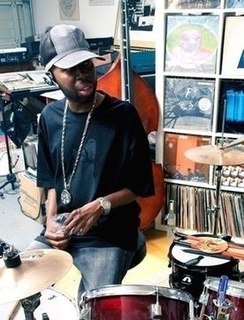
James Dewitt Yancey, better known by the stage names J Dilla and Jay Dee, was an American record producer, drummer, rapper and songwriter. He emerged in the mid-1990s underground hip hop scene in Detroit, Michigan, as a member of the group Slum Village. He was also a member of the Soulquarians, a musical collective active during the late 1990s and early 2000s.
Arthur Miller, American actor, playwright, and author (b. 1915) deaths

Arthur Asher Miller was an American playwright, essayist and screenwriter in the 20th-century American theater. Among his most popular plays are All My Sons (1947), Death of a Salesman (1949), The Crucible (1953), and A View from the Bridge (1955). He wrote several screenplays and was most noted for his work on The Misfits (1961). The drama Death of a Salesman is considered one of the best American plays of the 20th century.
Edgar de Evia, Mexican-American photographer (b. 1910) deaths

Edgar Domingo Evia y Joutard, known professionally as Edgar de Evia, was a Mexican-born American interiors photographer.
Albert J. Ruffo, American lawyer and politician, Mayor of San Jose (b. 1908) deaths
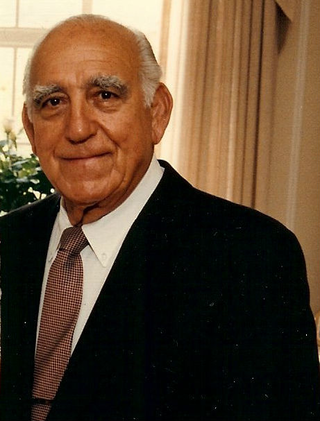
Albert J. Ruffo was an American politician, philanthropist, educator, lawyer, and football coach.

The Mayor of San Jose, officially the Mayor of the City of San José, is executive of the Government of the City of San Jose, California in the United States.
Ron Ziegler, American politician, 14th White House Press Secretary (b. 1939) deaths

Ronald Louis Ziegler was the 13th White House Press Secretary and Assistant to the President, serving during United States President Richard Nixon's administration.

The White House press secretary is a senior White House official whose primary responsibility is to act as spokesperson for the executive branch of the United States federal government, especially with regard to the president, senior aides and executives, as well as government policies.
Dave Van Ronk, American singer-songwriter and guitarist (b. 1936) deaths

David Kenneth Ritz Van Ronk was an American folk singer. An important figure in the American folk music revival and New York City's Greenwich Village scene in the 1960s, he was nicknamed the "Mayor of MacDougal Street".
Abraham Beame, American academic and politician, 104th Mayor of New York City (b. 1906) deaths

Abraham David Beame was the 104th mayor of New York City from 1974 to 1977. As mayor, he presided over the city during its fiscal crisis of the mid-1970s, when the city was almost forced to declare bankruptcy.

The mayor of New York City, officially Mayor of the City of New York, is head of the executive branch of the government of New York City and the chief executive of New York City. The mayor's office administers all city services, public property, police and fire protection, most public agencies, and enforces all city and state laws within New York City.
Buddy Tate, American saxophonist and clarinet player (b. 1913) deaths
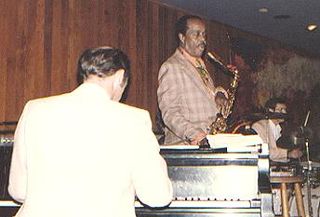
George Holmes "Buddy" Tate was an American jazz saxophonist and clarinetist.
María Carlé, Argentine tennis player births

María Lourdes Carlé is an Argentine professional tennis player.
Yara Shahidi, American actress and model births

Yara Sayeh Shahidi is an American actress and model. She gained recognition for her starring role as the oldest daughter Zoey Johnson on the sitcom Black-ish (2014–2022) and its spin-off series Grown-ish (2018–present). Her film credits include Imagine That (2009), Smallfoot (2018), and the lead role in The Sun Is Also a Star (2019). Time included her on "The 30 Most Influential Teens of 2016" list.
Jim Varney, American actor, comedian and writer (b. 1949) deaths

James Albert Varney Jr. was an American actor and comedian. He is best known for his broadly comedic role as Ernest P. Worrell, for which he won a Daytime Emmy Award, as well as appearing in films and numerous television commercial advertising campaigns. He played Jed Clampett in a film adaptation of The Beverly Hillbillies (1993) and performed the voice of Slinky Dog in the first two films of the Toy Story franchise (1995–1999). He died at age 50 of lung cancer on February 10, 2000, leaving two posthumous releases, of Daddy and Them and Atlantis: The Lost Empire.
Lilly King, American swimmer births

Lillia Camille King is an American swimmer who specializes in breaststroke. She currently represents the Cali Condors, a team that is part of the International Swimming League. At the 2016 Summer Olympics she won the gold medal in the 100 meter breaststroke competition and also won a gold medal in the 4x100 meter medley relay, in which she swam the breaststroke leg. At the 2020 Summer Olympics, King won a silver medal in the 4x100 meter medley relay for her efforts in the prelims, the silver medal in the 200 meter breaststroke, and the bronze medal in the 100 meter breaststroke. She is the current world record holder in the long course 100 meter breaststroke.
Chloë Grace Moretz, American actress births

Chloë Grace Moretz is an American actress. She is the recipient of various accolades, including four MTV Movie & TV Awards, two People's Choice Awards, two Saturn Awards, and two Young Artist Awards.
Nadia Podoroska, Argentine tennis player births

Nadia Natacha Podoroska is an Argentine professional tennis player. She competed at the 2020 Summer Olympics.
Brian Connolly, Scottish musician (b. 1945) deaths
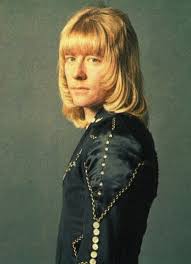
Brian Francis Connolly was a Scottish singer-songwriter, musician and actor, best known as the lead singer of glam rock band The Sweet between 1968 and 1979.
Emanuel Mammana, Argentinian footballer births

Emanuel Hernán Mammana is an Argentine footballer who plays as a centre-back for Argentine Primera División club River Plate.
Carolane Soucisse, Canadian ice dancer births

Carolane Soucisse is a Canadian ice dancer. With her skating partner, Shane Firus, she is the 2018 Four Continents silver medallist. They have finished third at the 2020 Canadian Championships, and represented Canada on the Grand Prix circuit and at the World Championships.

Ice dance is a discipline of figure skating that historically draws from ballroom dancing. It joined the World Figure Skating Championships in 1952, and became a Winter Olympic Games medal sport in 1976. According to the International Skating Union (ISU), the governing body of figure skating, an ice dance team consists of one woman and one man.
Lexi Thompson, American professional golfer births

Alexis Noel Thompson is an American professional golfer who plays on the LPGA Tour. At age 12, she was the youngest golfer ever to qualify to play in the U.S. Women's Open. She turned professional in June 2010 at age 15. On September 18, 2011, Thompson set a then new record as the youngest-ever winner of an LPGA tournament, at age 16 years, seven months, and eight days, when she won the Navistar LPGA Classic. Three months later she became the second-youngest winner of a Ladies European Tour event, capturing the Dubai Ladies Masters by four strokes on December 17, 2011. She won her first major championship at the 2014 Kraft Nabisco Championship at the age of 19 years, 1 month and 27 days, making her the second youngest LPGA golfer to win a major.
Paul Monette, American author, poet, and activist (b. 1945) deaths
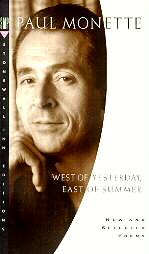
Paul Landry Monette was an American author, poet, and activist best known for his books about gay relationships.
Kang Seul-gi, South Korean singer births

Kang Seul-gi, known mononymously as Seulgi, is a South Korean singer and dancer. She is a member of girl group Red Velvet, its sub-unit Red Velvet – Irene & Seulgi, and the supergroup Got the Beat. She released her debut EP, 28 Reasons, in 2022.
Max Kepler, German baseball player births

Maximilian Kepler-Różycki is a German-American professional baseball outfielder for the Minnesota Twins of Major League Baseball (MLB). He made his MLB debut in 2015. Before signing with the Twins, he played for Buchbinder Legionäre Regensburg of Bundesliga. He bats and throws left-handed. He holds the record for home runs hit in a career by a German-born player.
Filip Twardzik, Czech footballer births

Filip Twardzik is a Czech footballer who plays as a centre back for LASK in the Austrian Bundesliga.
Luis Madrigal, Mexican footballer births
Luis Guillermo Madrigal Gutiérrez is a Mexican professional footballer who plays as a forward.
Fred Hollows, New Zealand-Australian ophthalmologist and academic (b. 1929) deaths
Frederick Cossom Hollows was a New Zealand–Australian ophthalmologist who became known for his work in restoring eyesight for thousands of people in Australia and many other countries. It is estimated that more than one million people in the world can see today because of initiatives instigated by Hollows, the most notable example being The Fred Hollows Foundation.
Haruka Nakagawa, Japanese singer and actress births

Haruka Nakagawa , is a Japanese media personality based in Indonesia. She is a former member of the Japanese idol group AKB48 and its sub-unit Watarirouka Hashiritai, as well as its Indonesian sister group JKT48, all produced by Yasushi Akimoto.
Reinhold Yabo, German footballer births

Reinhold Yabo is a German former professional footballer who played as a midfielder.
Alex Haley, American soldier, journalist, and author (b. 1921) deaths

Alexander Murray Palmer Haley was an American writer and the author of the 1976 book Roots: The Saga of an American Family. ABC adapted the book as a television miniseries of the same name and aired it in 1977 to a record-breaking audience of 130 million viewers. In the United States, the book and miniseries raised the public awareness of black American history and inspired a broad interest in genealogy and family history.
Rebecca Dempster, Scottish footballer births
Rebecca Eileen Dempster is a Scottish footballer who plays as a forward for Italian club Fimauto Valpolicella. She has made three appearances for the Scotland national team.
Emma Roberts, American actress births

Emma Rose Roberts is an American actress. Known for her work in film and television projects of the horror and thriller genres, she has received various accolades, including a Young Artist Award, an MTV Movie & TV Award, and a ShoWest Award.
Choi Soo-young, South Korean singer-songwriter, actress, and dancer births

Choi Soo-young, professionally known as Sooyoung, is a South Korean singer, actress and songwriter. She was a member of the short-lived Korean-Japanese singing duo Route 0 during 2002 in Japan. After returning to South Korea in 2004, Sooyoung eventually became a member of girl group Girls' Generation in 2007, which went on to become one of the best-selling artists in South Korea and one of South Korea's most popular girl groups worldwide. Apart from her group's activities, Sooyoung has also starred in various television dramas such as The Third Hospital (2012), Dating Agency: Cyrano (2013), My Spring Days (2014), Squad 38 (2016), Man in the Kitchen (2017–2018), Tell Me What You Saw (2020), and most recently in Run On (2021), So I Married the Anti-fan (2021), and If You Wish Upon Me (2022).
Liam Hendriks, Australian baseball player births

Liam Johnson Hendriks, nicknamed "Slydah", is an Australian professional baseball pitcher for the Chicago White Sox of Major League Baseball (MLB). He previously played for the Minnesota Twins, Kansas City Royals, Toronto Blue Jays and Oakland Athletics. He has been an All-Star three times and was the American League's Reliever of the Year in 2020 and 2021.
Francesco Acerbi, Italian footballer births

Francesco Acerbi is an Italian professional footballer who plays as a centre-back for Serie A club Inter Milan, on loan from Lazio, and the Italy national team.
Jakub Kindl, Czech ice hockey player births

Jakub Kindl is a Czech professional ice hockey defenseman who is currently an unrestricted free agent. He most recently played with Kölner Haie in the Deutsche Eishockey Liga (DEL). He previously played in the National Hockey League (NHL) with the Detroit Red Wings and Florida Panthers.
Justin Braun, American ice hockey player births

Justin Timothy Braun is an American professional ice hockey player for the Philadelphia Flyers of the National Hockey League (NHL). Braun was born in Saint Paul, Minnesota, and grew up nearby in White Bear Lake, Minnesota. He previously played for the San Jose Sharks and the New York Rangers.
Facundo Roncaglia, Argentinian footballer births
Facundo Sebastián Roncaglia is an Argentine professional footballer who plays for Boca Juniors. Mainly a central defender, he can also play as a right-back.
Jeff Adrien, American basketball player births

Jeff Adrien is an American professional basketball player for San Lorenzo de Almagro of the Liga Nacional de Básquet, Argentina. He formerly served as captain for the University of Connecticut Huskies, where he played as a power forward.
Josh Akognon, American basketball player births

Joshua Emmanuel Akognon is a Nigerian–American professional basketball player who last played for Montakit Fuenlabrada of the Liga ACB. He played college basketball for Washington State and Cal State Fullerton. Standing at 5 ft 11 in (1.80 m), he plays at the point guard position.
Radamel Falcao, Colombian footballer births

Radamel Falcao García Zárate is a Colombian professional footballer who plays as a forward for La Liga club Rayo Vallecano and often captains the Colombia national team. Nicknamed "El Tigre", he is considered one of the greatest Colombian footballers of all time.
Roberto Jiménez Gago, Spanish footballer births

Roberto Jiménez Gago, known simply as Roberto, is a Spanish former professional footballer who played as a goalkeeper.
Viktor Troicki, Serbian tennis player births

Viktor Troicki is a Serbian former professional tennis player. He won his first ATP singles title at the 2010 Kremlin Cup, and his second and third ATP singles titles at the 2015 and 2016 Apia International Sydney. His biggest achievements were a career-high singles ranking of world No. 12 and winning the deciding rubber in Serbia's Davis Cup final against France in 2010. Since then, in every Davis Cup he attended, he contributed to Serbia reaching a quarterfinal or better. He is known for serving a 12-month ban for anti-doping rule violation in 2013–14 for missing a blood test.
Selçuk İnan, Turkish footballer births

Selçuk İnan is a Turkish former professional footballer who played as a midfielder for Süper Lig side Galatasaray and the Turkey national football team.
Paul Millsap, American basketball player births

Paul Millsap is an American professional basketball player who last played for the Philadelphia 76ers of the National Basketball Association (NBA). A power forward from Louisiana Tech University, Millsap was selected by the Utah Jazz in the second round of the 2006 NBA draft and was named to the NBA All-Rookie Second Team. He played in Utah until 2013, when he became a member of the Atlanta Hawks. Millsap has also played for the Denver Nuggets and Brooklyn Nets. He is a four-time NBA All-Star.
Greg Bird, Australian rugby league player births

Greg Bird is an Australian former professional rugby league footballer who played in the 2000s and 2010s. He played as a stand-off, second-row or lock for Australia at international level.
Alex Gordon, American baseball player births

Alexander Jonathan Gordon is an American former professional baseball left fielder who played his entire career for the Kansas City Royals of Major League Baseball (MLB) from 2007 to 2020. Prior to playing professionally, Gordon attended the University of Nebraska–Lincoln, where he played college baseball for the Nebraska Cornhuskers.
Kim Hyo-jin, South Korean actress births

Kim Hyo-jin is a South Korean actress and model. She began modeling in teen magazines, and made her acting debut in 1999. She is best known for playing the youngest of the three sisters in sex comedy film Everybody Has Secrets. She made her theater debut in 2009 in the play A Midsummer Night's Dream and followed this up by appearing in the theatrical production Fool for Love a year later. In 2020, she played a con artist in the television drama Private Lives.
Vic Fuentes, American singer-songwriter and guitarist births

Victor Vincent "Vic" Fuentes is an American singer-songwriter and musician, best known for his work with the American post-hardcore rock band Pierce the Veil.
Justin Gatlin, American sprinter births

Justin Alexander Gatlin is a retired American sprinter who competed in the 60 meters, 100 meters and 200 meters. He is the 2004 Olympic Champion in the 100 meters, the 2005 and 2017 World Champion in the 100 meters, the 2005 World Champion in the 200 meters, and the 2019 World Champion in the 4 x 100 meters relay. In addition, Gatlin is the 2003 and 2012 World Indoor Champion in the 60 meters. He is a 5-time Olympic medalist and a 12-time World Championship medalist. At the World Athletics Relays, Gatlin won two gold medals in the 4 x 100 meters relay in 2015 and 2017. Gatlin is also a record 3-time Diamond League Champion in the 100 meters. He won the Diamond League trophy in 2013, 2014 and 2015.
Tarmo Neemelo, Estonian footballer births
Tarmo Neemelo is an Estonian retired professional footballer who last played as a forward for Meistriliiga club Paide Linnameeskond.
Hamad Al-Tayyar, Kuwaiti footballer births
Hamad Al Tayyar is a Kuwaiti footballer.
Iafeta Paleaaesina, New Zealand rugby league player births

Iafeta Iakopo "Feka" Paleaaesina is a New Zealand former rugby league footballer. He played as a prop for the New Zealand Warriors in the NRL, and for the Wigan Warriors, Salford City Reds and Hull F.C. in the Super League.
Uzo Aduba, American actress births

Uzoamaka Nwanneka Aduba (listen) is an American actress. Known for her work on stage and screen, she has received three Primetime Emmy Awards and five Screen Actors Guild Awards. She also received three Golden Globe Awards nominations and a Tony Award nomination.
Stephanie Beatriz, American actress births

Stephanie Beatriz Bischoff Alvizuri is an American actress, model and singer. She is known for playing Detective Rosa Diaz in the Fox/NBC comedy series Brooklyn Nine-Nine (2013–2021), and voicing protagonist Mirabel Madrigal in the Disney film Encanto.
Andrew Johnson, English international footballer and club ambassador births

Andrew Johnson is an English former professional footballer who played as a striker. He played for Birmingham City, Crystal Palace, Everton, Fulham and Queens Park Rangers. He was capped eight times for England. As of March 2016, Johnson was working at Crystal Palace as a club ambassador.
Holly Willoughby, English model and television host births

Holly Marie Willoughby is an English television presenter, author and model. She is currently the co-presenter of ITV's This Morning (2009–present) and Dancing on Ice alongside Phillip Schofield.
César Izturis, Venezuelan baseball player births

César David Izturis is a Venezuelan former professional baseball shortstop. He is the half-brother of shortstop Maicer Izturis.
Enzo Maresca, Italian footballer births
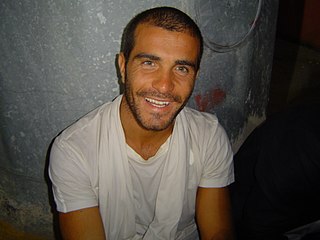
Vincenzo 'Enzo' Maresca is an Italian former footballer who played as a midfielder, and a current coach.
Mike Ribeiro, Canadian ice hockey player births

Michael Tavares Ribeiro is a Canadian former professional ice hockey centre. Originally selected by the Montreal Canadiens in the second round, 45th overall, of the 1998 NHL Entry Draft, Ribeiro has played in the NHL for the Canadiens, Dallas Stars, Washington Capitals, Phoenix Coyotes and the Nashville Predators.
Joey Hand, American race car driver births
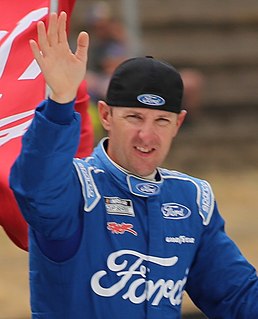
Joseph F. Hand is an American professional racing driver who competes in sports car racing as a Ford factory driver. A former champion of the Star Mazda Series, Hand is the co-winner of the 2011 24 Hours of Daytona driving for Chip Ganassi Racing, the 2012 12 Hours of Sebring GT class for BMW Team Rahal, and the 2016 24 Hours of Le Mans LMGTE Pro class for Ford Chip Ganassi Team USA driving the Ford GT.
Edvard Kardelj, Slovene general and politician, 2nd Foreign Minister of Yugoslavia (b. 1910) deaths

Edvard Kardelj, also known by the pseudonyms Bevc, Sperans and Krištof, was a Yugoslav politician and economist. He was one of the leading members of the Communist Party of Slovenia before World War II. During the war, Kardelj was one of the leaders of the Liberation Front of the Slovenian People and a Slovene Partisan, and after the war, he was a federal political leader in the Socialist Federal Republic of Yugoslavia and led the Yugoslav delegation in peace talks with Italy over the border dispute in the Julian March. He was the main creator of the Yugoslav system of workers' self-management. He was an economist and a full member of both the Slovene Academy of Sciences and Arts and the Serbian Academy of Sciences and Arts. he played a major role and setting the foreign policy by designing the fundamental ideological basis for the Yugoslav policy of nonalignment in the 1950s and the 1960s.

The Ministry of Foreign Affairs of Yugoslavia was the ministry responsible for representing the Kingdom of Yugoslavia internationally from 1918 to 1941 and the Socialist Federal Republic of Yugoslavia from 1945 to 1992. It may also refer to the ministry which represented Serbia and Montenegro from 1992 to 2006.
Salif Diao, Senegalese footballer births

Salif Alassane Diao is a Senegalese former professional footballer who played as a defensive midfielder.

Senegal, officially the Republic of Senegal, is a country in West Africa, on the Atlantic Ocean coastline. Senegal is bordered by Mauritania to the north, Mali to the east, Guinea to the southeast and Guinea-Bissau to the southwest. Senegal nearly surrounds the Gambia, a country occupying a narrow sliver of land along the banks of the Gambia River, which separates Senegal's southern region of Casamance from the rest of the country. Senegal also shares a maritime border with Cape Verde. Senegal's economic and political capital is Dakar.
Lance Berkman, American baseball player and coach births

William Lance Berkman, nicknamed "Fat Elvis" and "Big Puma", is an American baseball coach and former professional baseball outfielder and first baseman, who is the current head baseball coach of the Houston Christian Huskies. He played 15 seasons in Major League Baseball (MLB) for the Houston Astros, New York Yankees, St. Louis Cardinals and Texas Rangers. Berkman is a six-time MLB All-Star and won a World Series championship and the National League Comeback Player of the Year Award with the Cardinals in 2011. He stands 6 feet 1 inch (1.85 m), and weighs 220 pounds (100 kg). Berkman spent various seasons of his career as a regular at all three outfield positions.
Keeley Hawes, English actress births

Claire Julia Hawes, known professionally as Keeley Hawes, is an English actress. After beginning her career in a number of literary adaptations, including Our Mutual Friend (1998) and Tipping the Velvet (2002), Hawes rose to fame for her portrayal of Zoe Reynolds in the BBC series Spooks (2002–2004), followed by her co-lead performance as DI Alex Drake in Ashes to Ashes (2008–2010). She is also known for her roles in Jed Mercurio's Line of Duty as DI Lindsay Denton (2014–2016) and in BBC One drama Bodyguard (2018) in which she played Home Secretary Julia Montague. Hawes is a three-time BAFTA TV Award nominee, having been nominated for the British Academy Television Award for Best Actress for her roles as Lindsay Denton and Julia Montague, and a British Academy Television Award for Best Supporting Actress for her role as Dorothy Wick in the drama Mrs Wilson.
Nikos Kavvadias, Greek sailor and poet (b. 1910) deaths
Nikos Kavvadias was a Greek poet, writer and a sailor by profession. He used his travels around the world, the life at sea and its adventures, as powerful metaphors for the escape of ordinary people, outside the boundaries of reality. His poems are widely regarded as belonging to symbolism, and he has been characterized by some as a poète maudit.
Elizabeth Banks, American actress births

Elizabeth Banks is an American actress and filmmaker. She is known for playing Effie Trinket in The Hunger Games film series (2012–2015) and Gail Abernathy-McKadden in the Pitch Perfect film series (2012–2017). Banks made her directorial film debut with Pitch Perfect 2 (2015), whose $69 million opening-weekend gross set a record for a first-time director. She also directed, wrote, produced, and starred in the action comedy film Charlie's Angels (2019). Banks founded the film and television production company Brownstone Productions in October 2002, with her husband Max Handelman.
Ty Law, American football player births

Tajuan Edward "Ty" Law is an American former football cornerback who played in the National Football League (NFL) for 15 seasons, primarily with the New England Patriots. He played college football at Michigan and was selected by the Patriots in the first round of the 1995 NFL Draft. During his 10 seasons in New England, he received four Pro Bowl selections and two first-team All-Pro honors. A three-time Super Bowl winner with the Patriots, Law also holds the franchise record for interceptions. Law spent his final five seasons as a member of the New York Jets, Kansas City Chiefs, and Denver Broncos, earning a fifth Pro Bowl selection with the Jets. Ranking 24th in NFL career interceptions, he twice led the league in interceptions during the 1998 and 2005 seasons. He was inducted to the Pro Football Hall of Fame in 2019.
Ivri Lider, Israeli singer births

Ivri Lider is an Israeli pop star and part of the duo TYP, also known as The Young Professionals. He served as a judge on the first season of The X Factor Israel.
Henry Paul, New Zealand rugby player and coach births

Henry Paul, also known by the nickname of "HP", is a former dual-code international rugby league and rugby union footballer. Paul represented New Zealand in rugby league and England in rugby union and rugby sevens. He once held the world record for the most consecutive kicks on the field, a record now held by Neil Jenkins. Paul still holds the record of kicking the most goals in a Super League season with 178 for Bradford back in 2001 and the record for the most goals in a game, being 14, when playing for Bradford in 2000.
Martha Lane Fox, Baroness Lane-Fox of Soho, English businesswoman and politician births

Martha Lane Fox, Baroness Lane-Fox of Soho, is a British businesswoman, philanthropist, and public servant. She co-founded Last Minute during the dotcom boom of the early 2000s and has subsequently served on public service digital projects. She sits on the boards of WeTransfer and Chanel, as well as being a trustee of The Queen's Commonwealth Trust. She previously served on the board of Channel 4.
Michael Kasprowicz, Australian cricketer births

Michael Scott Kasprowicz is a former Australian international cricketer, who played all formats of the game. He is a right arm fast bowler. He represented Queensland and played in the English county scene at first class level.
Lorena Rojas, Mexican actress and singer (d. 2015) births

Lorena Rojas was a Mexican actress and singer, best known for her leading roles in popular telenovelas.
Melissa Doyle, Australian journalist and author births

Melissa Jane Doyle is an Australian television presenter, author and journalist.
Noureddine Naybet, Moroccan international footballer and manager births

Noureddine Naybet is a Moroccan retired professional footballer who played as a central defender. He played in Spain and Portugal for Sporting CP and England for Tottenham Hotspur. He is considered one of the best defenders in La Liga of his generation. Naybet spent the longest and most successful period of his career with Deportivo La Coruña in Spain's La Liga, from 1996 to 2004. He was named the 44th greatest African player of all time by the African football expert Ed Dove.
Åsne Seierstad, Norwegian journalist and author births

Åsne Seierstad is a Norwegian freelance journalist and writer, best known for her accounts of everyday life in war zones – most notably Kabul after 2001, Baghdad in 2002 and the ruined Grozny in 2006.
Joe Mangrum, American painter and sculptor births

Joe Mangrum is an installation and multiple-medium artist who is particularly known for his large-scale colored sand paintings. He resides in New York City. Using a wide spectrum of components, his work often includes organic materials, such as flowers, food and sand, in addition to deconstructed computer parts, auto-parts and a multitude of found and collected objects. His installations often include mandala-like forms, pyramids, maps, grids and mushroom clouds and the Ouroboros.
James Small, South African rugby player (d. 2019) births
James Terence Small was a South African rugby union winger who played for the Springboks. His international debut was against the All Blacks in 1992 and he made his final appearance against Scotland in 1997. In that final test match, he scored his 20th try, becoming the leading Springbok try scorer, eclipsing Danie Gerber's record. He was also the leading try scorer in the 1996 Super 12 season.
Peter Popovic, Swedish ice hockey player and coach births

Peter "Poppe" Popovic is a Swedish former ice hockey defenceman of Serbian ancestry, and currently an assistant coach of the Sweden men's national team. Popovic was drafted by the Montreal Canadiens in the 5th round of the 1988 NHL Entry Draft.
Garrett Reisman, American engineer and astronaut births

Garrett Erin Reisman is an American engineer and former NASA astronaut. He was a backup crew member for Expedition 15 and joined Expedition 16 aboard the International Space Station for a short time before becoming a member of Expedition 17. He returned to Earth on June 14, 2008 on board STS-124 on Space Shuttle Discovery. He was a member of the STS-132 mission that traveled to the International Space Station aboard Space Shuttle Atlantis from May 14 to 26, 2010. He is a consultant at SpaceX and a Professor of Astronautics Practice at the University of Southern California's Viterbi School of Engineering.
Laura Dern, American actress, director, and producer births

Laura Elizabeth Dern is an American actress. She is the recipient of numerous accolades, including an Academy Award, a Primetime Emmy Award, a BAFTA Award, and five Golden Globe Awards.
Jacky Durand, French cyclist and sportscaster births

Jacky Durand is a French former professional road bicycle racer. Durand had an attacking style, winning the Tour of Flanders in 1992 after a 217 kilometres (135 mi) breakaway, and three stages in the Tour de France.
Vince Gilligan, American director, producer, and screenwriter births

George Vincent Gilligan Jr. is an American writer, producer, and director. He is known for his television work, specifically as creator, head writer, executive producer, and director of AMC's Breaking Bad (2008–2013) and its spin-off prequel series Better Call Saul (2015–2022). He was a writer and producer for The X-Files and was the co-creator of its spin-off, The Lone Gunmen (2001).
Dionysios Kokkinos, Greek historian and author (b. 1884) deaths
Dionysios Kokkinos was a Greek historian and writer.
Natalie Bennett, Australian-English journalist and politician births

Natalie Louise Bennett, Baroness Bennett of Manor Castle is a Australian-British politician and journalist who served as Leader of the Green Party of England and Wales from 2012 to 2016. Bennett was given a peerage in Theresa May's 2019 resignation honours.
Daryl Johnston, American football player and sportscaster births

Daryl Peter "Moose" Johnston is a former fullback in the National Football League for the Dallas Cowboys. He played college football at Syracuse University. He was the General Manager of the San Antonio Commanders of the Alliance of American Football in 2019, the Director of Player Personnel for the Dallas Renegades in 2020, and currently serves as the Executive Vice President of Football Operations for the newest incarnation of the USFL.
Billy Rose, American composer and songwriter (b. 1899) deaths

Billy Rose was an American impresario, theatrical showman and lyricist. For years both before and after World War II, Billy Rose was a major force in entertainment, with shows such as Billy Rose's Crazy Quilt (1931), Jumbo (1935), Billy Rose's Aquacade (1937), and Carmen Jones (1943). As a lyricist, he is credited with many songs, notably "Don't Bring Lulu" (1925), "Tonight You Belong To Me" (1926), "Me and My Shadow" (1927), "More Than You Know" (1929), "Without a Song" (1929), "It Happened in Monterrey" (1930) and "It's Only a Paper Moon" (1933).
Glenn Beck, American journalist, producer, and author births

Glenn Lee Beck is an American conservative political commentator, radio host, entrepreneur, and television producer. He is the CEO, founder, and owner of Mercury Radio Arts, the parent company of his television and radio network TheBlaze. He hosts the Glenn Beck Radio Program, a talk-radio show nationally syndicated on Premiere Radio Networks. Beck also hosts the Glenn Beck television program, which ran from January 2006 to October 2008 on HLN, from January 2009 to June 2011 on Fox News and now airs on TheBlaze. Beck has authored six New York Times–bestselling books.
Lenny Dykstra, American baseball player births

Leonard Kyle Dykstra, is an American former professional baseball center fielder, who played in Major League Baseball (MLB) for the New York Mets (1985–1989) and Philadelphia Phillies (1989–1996). Dykstra was a three-time All-Star and won a World Series championship as a member of the 1986 Mets. Since retirement, Dykstra has been mired in financial and legal troubles. In 2009, he filed for bankruptcy. In 2011, he was arrested and charged with bankruptcy fraud, followed by grand theft auto and drug possession charges on an unrelated case, as well as indecent exposure. He served 6+1⁄2 months in federal prison.
Randy Velischek, Canadian ice hockey player and coach births

Randolph John Velischek is a Canadian former professional ice hockey defenceman who played ten seasons in the National Hockey League from 1982–83 until 1991–92 for the Minnesota North Stars, New Jersey Devils, and Quebec Nordiques. Randy Velischek was drafted 53rd overall by the North Stars in the 1980 NHL Entry Draft. He played 509 career NHL games, scoring 21 goals and 97 points.
Cliff Burton, American heavy metal bassist (d. 1986) births

Clifford Lee Burton was an American musician who was the bassist for heavy metal band Metallica from 1982 until his death in 1986. He performed on Kill 'Em All (1983), Ride the Lightning (1984), and Master of Puppets (1986), the band's first three studio albums. Burton also received a posthumous writing credit on ...And Justice for All (1988) for the song "To Live Is to Die".
Bobby Czyz, American boxer and commentator births
Robert Edward Czyz is an American retired boxer and commentator. Czyz was a two-division world titlist at light heavyweight and cruiserweight.
Alexander Payne, American director, producer, and screenwriter births

Constantine Alexander Payne is an American film director, screenwriter and producer. He is best known for the films Citizen Ruth (1996), Election (1999), About Schmidt (2002), Sideways (2004), The Descendants (2011), Nebraska (2013) and Downsizing (2017). He is noted for his dark humor and satirical depictions of contemporary American society. Payne is a two-time winner of the Academy Award for Best Adapted Screenplay, and a three-time nominee of the Academy Award for Best Director. In 2017, Metacritic ranked Payne 2nd on its list of the 25 best film directors of the 21st century.
George Stephanopoulos, American television journalist births

George Robert Stephanopoulos is an American television host, political commentator, and former Democratic advisor. Stephanopoulos currently is a coanchor with Robin Roberts and Michael Strahan on Good Morning America, and host of This Week, ABC's Sunday morning current events news program.
Jim Kent, American biologist, computer programmer, academic births
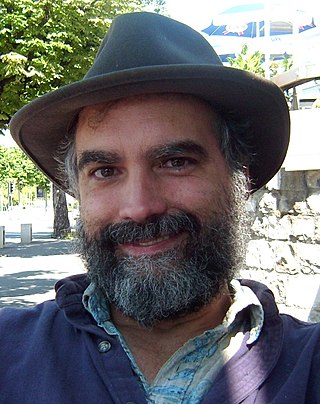
William James Kent is an American research scientist and computer programmer. He has been a contributor to genome database projects and the 2003 winner of the Benjamin Franklin Award.
Aloysius Stepinac, Croatian cardinal (b. 1898) deaths

Aloysius Viktor Cardinal Stepinac was a senior-ranking Yugoslav Croat prelate of the Catholic Church. A cardinal, Stepinac served as Archbishop of Zagreb from 1937 until his death, a period which included the fascist rule of the Ustaše over the Axis puppet state the Independent State of Croatia from 1941 to 1945 during World War II. He was tried by the communist Yugoslav government after the war and convicted of treason and collaboration with the Ustaše regime. The trial was depicted in the West as a typical communist "show trial", and was described by The New York Times as biased against the Archbishop. However, Professor John Van Antwerp Fine Jr. is of the opinion that the trial was "carried out with proper legal procedure". In a verdict that polarized public opinion both in Yugoslavia and beyond, the Yugoslav authorities found him guilty on the charge of high treason, as well as complicity in the forced conversions of Orthodox Serbs to Catholicism. Stepinac advised individual priests to admit Orthodox believers to the Catholic Church if their lives were in danger, such that this conversion had no validity, allowing them to return to their faith once the danger passed. He was sentenced to 16 years in prison, but served only five at Lepoglava before being transferred to house arrest with his movements confined to his home parish of Krašić.
John Calipari, American basketball player and coach births

John Vincent Calipari is an American basketball coach. Since 2009, he has been the head coach of the University of Kentucky men's team, with whom he won the NCAA Championship in 2012. He has been named Naismith College Coach of the Year three times, and was inducted into the Basketball Hall of Fame in 2015.
Katherine Freese, American astrophysicist and academic births

Katherine Freese is a theoretical astrophysicist. She is currently a professor of physics at the University of Texas at Austin, where she holds the Jeff and Gail Kodosky Endowed Chair in Physics. She is known for her work in theoretical cosmology at the interface of particle physics and astrophysics.
Laura Ingalls Wilder, American author (b. 1867) deaths

Laura Elizabeth Ingalls Wilder was an American writer, mostly known for the Little House on the Prairie series of children's books, published between 1932 and 1943, which were based on her childhood in a settler and pioneer family.
James Martin Graham, American Roman Catholic priest (d. 1997) births
James Martin Graham American Roman Catholic priest, founder of The Sts. Martin & James Respite in Waterbury, Connecticut and Director of the International Christian AIDS Network (ICAN).
Enele Sopoaga, Tuvaluan politician, 12th Prime Minister of Tuvalu births

Enele Sosene Sopoaga PC is a Tuvaluan diplomat and politician who was Prime Minister of Tuvalu from 2013 to 2019.

The prime minister of Tuvalu is the head of government of Tuvalu. According to Tuvalu's constitution, the prime minister must always be a member of the parliament, and is elected by parliament in a secret ballot. Because there are no political parties in Tuvalu, any member of parliament can be nominated for the role. Following the parliamentary vote the governor-general of Tuvalu is responsible for swearing in as the prime minister the person who commands the confidence of a majority of members of parliament.
Leonora Speyer, American poet and violinist (b. 1872) deaths

Leonora Speyer, Lady Speyer, was an American poet and violinist.
Emmanouil Tsouderos, Greek banker and politician, 132nd Prime Minister of Greece (b. 1882) deaths

Emmanouil Tsouderos was a political and financial figure of Greece. During World War II, he was the internationally recognized Prime Minister of Greece from 1941 to 1944 as head of the Greek government in exile. He resigned in 1944, following a mutiny in the exiled armed forces

The prime minister of the Hellenic Republic, colloquially referred to as the prime minister of Greece, is the head of government of the Hellenic Republic and the leader of the Greek Cabinet. The incumbent prime minister is Kyriakos Mitsotakis, who took office on 8 July 2019 from Alexis Tsipras.
Jim Cramer, American television personality, pundit, and author births
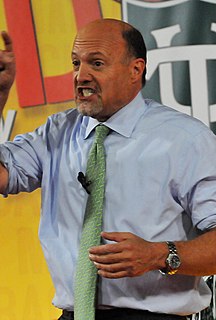
James Joseph Cramer is an American television personality and author. He is the host of Mad Money on CNBC and an anchor on Squawk on the Street. A former hedge fund manager, founder, and senior partner of Cramer Berkowitz, Cramer wrote several books, including Confessions of a Street Addict (2002), Jim Cramer's Real Money: Sane Investing in an Insane World (2005), Jim Cramer's Mad Money: Watch TV, Get Rich (2006), and Jim Cramer's Get Rich Carefully (2013). He co-founded TheStreet.com, which he wrote for from 1996 to 2021. Cramer hosted Kudlow & Cramer from 2002 to 2005.
Greg Norman, Australian golfer and sportscaster births

Gregory John Norman AO is an Australian entrepreneur and retired professional golfer who spent 331 weeks as world number one in the 1980s and 1990s. He won 89 professional tournaments, including 20 PGA Tour tournaments and two majors: The Open Championship in 1986 and 1993. Norman also earned thirty top-10 finishes and was the runner-up eight times in majors throughout his career. In a reference to his blond hair, size, aggressive golf style and his birthplace's native coastal animal, Norman's nickname is "The Great White Shark", which he earned after his play at the 1981 Masters.
Lee Hsien Loong, Singaporean general and politician, 3rd Prime Minister of Singapore births

Lee Hsien Loong is a Singaporean politician and former brigadier-general who has been serving as Prime Minister of Singapore and Secretary-General of the People's Action Party since 2004. He has been the Member of Parliament (MP) representing the Teck Ghee division of Ang Mo Kio GRC since 1991, and previously Teck Ghee SMC between 1984 and 1991.

The prime minister of Singapore is the head of government of the Republic of Singapore. The president appoints the prime minister, a Member of Parliament (MP) who in their opinion, is most likely to command the confidence of the majority of MPs. The incumbent prime minister is Lee Hsien Loong, who took office on 12 August 2004.
Bob Iger, American media executive births

Robert Allen "Bob" Iger is an American businessman who is the Chief Executive Officer (CEO) of The Walt Disney Company. He previously served as the President of ABC Television between 1994 and 1995 and the President and Chief Operating Officer (COO) of Capital Cities/ABC, from 1995 until its acquisition by Disney in 1996. Iger was named President of Disney in 2000 and succeeded Michael Eisner as CEO in 2005, until his contract expired in 2020. He then served as Executive Chairman until his retirement from the company in 2021. At the request of Disney's Board of Directors, Iger returned to Disney as CEO on November 20, 2022, following the unscheduled and immediate exit of his appointed successor, Bob Chapek.
Luis Donaldo Colosio Murrieta, Mexican economist and politician (d. 1994) births

Luis Donaldo Colosio Murrieta was a Mexican politician, economist, and Institutional Revolutionary Party (PRI) presidential candidate, who was assassinated at a campaign rally in Tijuana during the Mexican presidential campaign of 1994.
Mark Spitz, American swimmer births
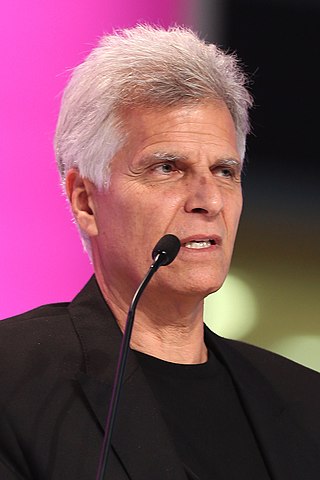
Mark Andrew Spitz is an American former competitive swimmer and nine-time Olympic champion. He was the most successful athlete at the 1972 Summer Olympics in Munich, winning seven gold medals, each in world-record time. This achievement lasted for 36 years, until it was surpassed by fellow American Michael Phelps, who won eight golds at the 2008 Summer Olympics in Beijing.
Marcel Mauss, French sociologist and anthropologist (b. 1872) deaths
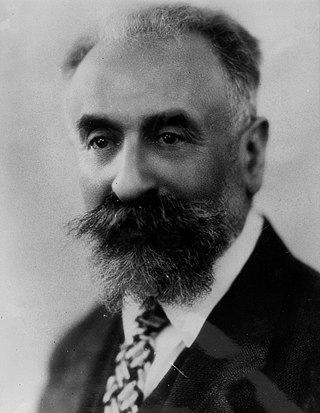
Marcel Mauss was a French sociologist and anthropologist known as the "father of French ethnology". The nephew of Émile Durkheim, Mauss, in his academic work, crossed the boundaries between sociology and anthropology. Today, he is perhaps better recognised for his influence on the latter discipline, particularly with respect to his analyses of topics such as magic, sacrifice and gift exchange in different cultures around the world. Mauss had a significant influence upon Claude Lévi-Strauss, the founder of structural anthropology. His most famous work is The Gift (1925).
Nigel Olsson, English rock drummer and singer-songwriter births

Nigel Olsson is an English rock drummer and singer best known for his long-time affiliation with Elton John. A dynamic drummer and backing vocalist, Olsson helped establish the Elton John sound as a member of the Elton John Band alongside bassist Dee Murray.
Louise Arbour, Canadian lawyer and jurist births
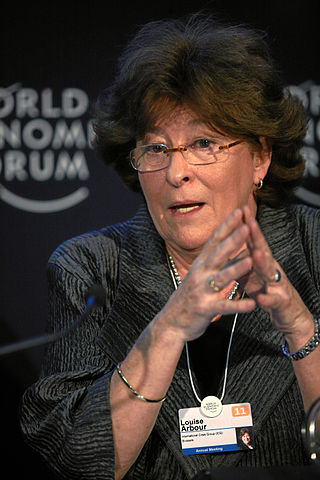
Louise Bernice Arbour is a Canadian lawyer, prosecutor and jurist.
Butch Morris, American cornet player, composer, and conductor (d. 2013) births

Lawrence Douglas "Butch" Morris was an American cornetist, composer and conductor. He was known for pioneering his structural improvisation method, Conduction, which he utilized on many recordings.
Nicholas Owen, English journalist births
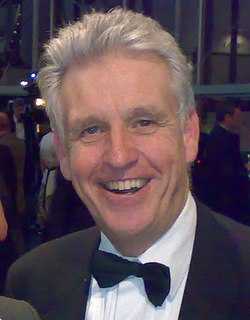
Nicholas David Arundel Owen is an English journalist, television presenter and radio presenter. He now works for the BBC, presenting on the BBC News channel and BBC One, and hosts a weekly programme on Classic FM radio.
Delma S. Arrigoitia, Puerto Rican historian, author, educator and lawyer births
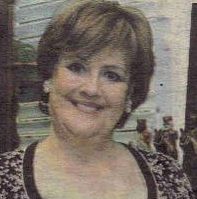
Delma S. Arrigoitia is a historian, author, educator and lawyer whose written works cover the life and works of some of Puerto Rico's most prominent politicians of the early 20th century. After earning her doctorate in history at Fordham University in New York, she helped develop the graduate school for history at the University of Puerto Rico and taught there for years.
Anacleto Díaz, Filipino lawyer and jurist (b. 1878) deaths

Anacleto Díaz was a Filipino jurist who served as an Associate Justice of the Supreme Court.
Peter Allen, Australian singer-songwriter, pianist, and actor (d. 1992) births

Peter Allen was an Australian singer-songwriter, musician and entertainer, known for his flamboyant stage persona, boundless energy, and lavish costumes. His songs were made popular by many recording artists, including Elkie Brooks, Melissa Manchester and Olivia Newton-John, including Newton-John's first chart topping hit "I Honestly Love You", and the chart topping and Academy Award winning "Arthur's Theme " by Christopher Cross. In addition to recording many albums, he enjoyed a cabaret and concert career, including appearances at the Radio City Music Hall riding a camel. His patriotic song "I Still Call Australia Home", has been used extensively in advertising campaigns, and was added to the National Film and Sound Archive's Sounds of Australia registry in 2013.
Frank Keating, American lawyer and politician, 25th Governor of Oklahoma births
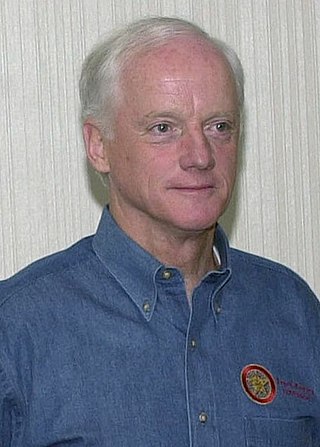
Francis Anthony Keating II is an American attorney and politician who served as the 25th governor of Oklahoma from 1995 to 2003.

The governor of Oklahoma is the head of government of the U.S. state of Oklahoma. Under the Oklahoma Constitution, the governor serves as the head of the Oklahoma executive branch, of the government of Oklahoma. The governor is the ex officio commander-in-chief of the Oklahoma National Guard when not called into federal use. Despite being an executive branch official, the governor also holds legislative and judicial powers. The governor's responsibilities include making yearly "State of the State" addresses to the Oklahoma Legislature, submitting the annual state budget, ensuring that state laws are enforced, and that the peace is preserved. The governor's term is four years in length.
Frances Moore Lappé, American author and activist births

Frances Moore Lappé is an American researcher and author in the area of food and democracy policy. She is the author of 19 books including the three-million-copy selling 1971 book Diet for a Small Planet, which the Smithsonian's National Museum of American History describes as "one of the most influential political tracts of the times." She has co-founded three organizations that explore the roots of hunger, poverty, and environmental crises, as well as solutions now emerging worldwide through what she calls Living Democracy. Her most recent books include Daring Democracy: Igniting Power, Meaning, and Connection for the America We Want, coauthored with Adam Eichen, and World Hunger: 10 Myths. with Joseph Collins. In 1987, she was awarded the Right Livelihood Award for "revealing the political and economic causes of world hunger and how citizens can help to remedy them."
Rufus Reid, American bassist and composer births
Rufus Reid is an American jazz bassist, educator, and composer.
E. M. Antoniadi, Greek-French astronomer and chess player (b. 1870) deaths

Eugène Michel Antoniadi was a Greek-French astronomer.
Michael Apted, English director and producer (d. 2021) births
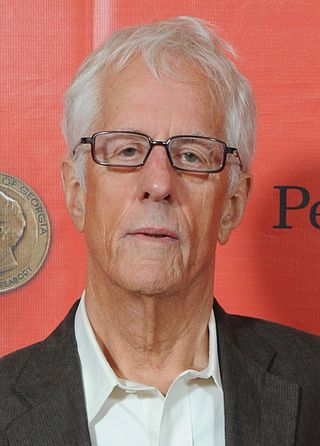
Michael David Apted, was a British television and film director and producer.
Mary Rand, English sprinter and long jumper births
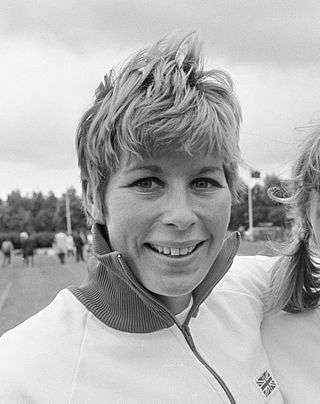
Mary Denise Rand, MBE is an English former track and field athlete. She won the long jump at the 1964 Summer Olympics by breaking the world record, the first British female to win an Olympic gold medal in track and field. She remains the only Great Britain female athlete to win three medals in a single Games.
Kenny Rankin, American singer-songwriter (d. 2009) births
Kenneth Joseph Rankin was an American singer and songwriter in the folk rock and singer-songwriter genres; he was influenced by jazz. Rankin would often sing notes in a high range to express emotion.
Adrienne Clarkson, Hong Kong-Canadian journalist and politician, 26th Governor General of Canada births

Adrienne Louise Clarkson is a Hong Kong-born Canadian journalist who served from 1999 to 2005 as Governor General of Canada, the 26th since Canadian Confederation.

The governor general of Canada is the federal viceregal representative of the Canadian monarch, currently King Charles III. The King is head of state of Canada and the 14 other Commonwealth realms, but he resides in his oldest and most populous realm, the United Kingdom. The King, on the advice of his Canadian prime minister, appoints a governor general to carry on the Government of Canada in the King's name, performing most of his constitutional and ceremonial duties. The commission is for an indefinite period—known as serving at His Majesty's pleasure—though five years is the usual length of time. Since 1959, it has also been traditional to alternate between francophone and anglophone officeholders—although many recent governors general have been bilingual.
Deolinda Rodríguez de Almeida, Angolan nationalist (d. 1967) births

Deolinda Rodrigues Francisco de Almeida was an Angolan nationalist, militant, writer, and translator, who also taught, wrote poetry, and worked as a radio host. Born into a Methodist family, she received a scholarship to study in Brazil, from where she corresponded with Martin Luther King Jr. Fearing extradition, she continued her education in the United States before returning to Angola. Rodrigues was a member of the People's Movement for the Liberation of Angola (MPLA) and co-founded its women's wing, the Organização da Mulher de Angola. She was captured, tortured, and executed by a rival nationalist group in 1967. A documentary of her life was released in 2014.

Angola, officially the Republic of Angola, is a country located on the west coast of central-southern Africa. It is the second-largest Lusophone (Portuguese-speaking) country in both total area and population, and is the seventh-largest country in Africa. It is bordered by Namibia to the south, the Democratic Republic of the Congo to the north, Zambia to the east, and the Atlantic Ocean to the west. Angola has an exclave province, the province of Cabinda, that borders the Republic of the Congo and the Democratic Republic of the Congo. The capital and most populous city is Luanda.
Pope Pius XI (b. 1857) deaths

Pope Pius XI, born Ambrogio Damiano Achille Ratti, was head of the Catholic Church from 6 February 1922 to his death in February 1939. He was the first sovereign of Vatican City from its creation as an independent state on 11 February 1929. He assumed as his papal motto "Pax Christi in Regno Christi," translated "The Peace of Christ in the Kingdom of Christ."
Anne Anderson, Scottish physiologist and academic (d. 1983) births

Anne Barbara Michie Anderson was a Scottish reproductive physiologist, researcher, lecturer, and author. Her major contributions were for her research in reproductive physiology. In the last decade of her life, she broadened this to encompass more about women's health generally, including doing clinical trials and working with people focusing in on what would become evidence-based medicine.
Roberta Flack, American singer-songwriter and pianist births
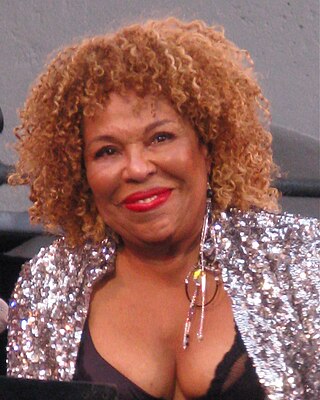
Roberta Cleopatra Flack is an American singer. She is known for her No. 1 singles "The First Time Ever I Saw Your Face", "Killing Me Softly with His Song", "Feel Like Makin' Love"; and "Where Is the Love" and "The Closer I Get to You", two of her many duets with Donny Hathaway. Flack is also noted for her influence on the subgenre of contemporary R&B called quiet storm, along with her interpretations of songs by various songwriters, such as Leonard Cohen and members of the Beatles.
Theodore Antoniou, Greek composer and conductor (d. 2018) births
Theodore Antoniou, was a Greek composer and conductor. His works vary from operas and choral works to chamber music, from film and theatre music to solo instrumental works. In addition to his career as composer and conductor, he was professor of composition at Boston University. His education included studies in violin, voice, and composition at the National Conservatory of Athens, the Hellenic Conservatory, and conducting at both The Hochschule für Musik and the International Music Centre in Darmstadt. He was a member of the Academy of Athens.
Barbara Maier Gustern, American vocal coach and singer (d. 2022) births

Barbara Joan Gustern was an American vocal coach and singer. She had many noted students, including Blondie singer Debbie Harry, Taylor Mac, Justin Vivian Bond, Diamanda Galas, and Kathleen Hanna.
Richard Schickel, American journalist, author, and critic (d. 2017) births

Richard Warren Schickel was an American film historian, journalist, author, documentarian, and film and literary critic. He was a film critic for Time magazine from 1965–2010, and also wrote for Life magazine and the Los Angeles Times Book Review. His last writings about film were for Truthdig.
Faramarz Payvar, Iranian santur player and composer (d. 2009) births

Master Farâmarz Pâyvar was an Iranian composer and santur player. Payvar died on 9 December 2009 after a long struggle with brain damage. Although once perceived as marginal, the santur is now considered an important solo instrument in Persian classical music, largely as a result of his work. Over the course of his career, Payvar revolutionised its playing, led two major ensembles and made numerous recordings.
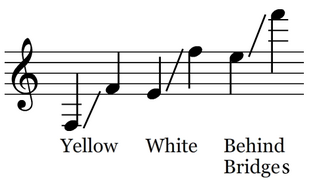
The santur, is a hammered dulcimer of Iranian or Mesopotamian origins.
Barrie Ingham, English-American actor (d. 2015) births
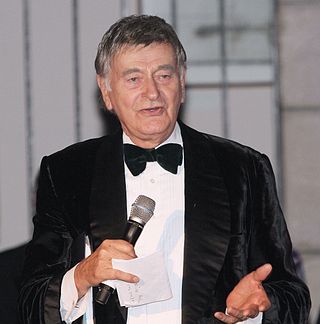
Barrie Stanton Ingham was an English actor, performing on stage and "in a handful of films." He was perhaps most widely known as "a prolific television actor". His notable work includes A Challenge for Robin Hood (1967) and The Great Mouse Detective (1986).
Edgar Wallace, English author and screenwriter (b. 1875) deaths

Richard Horatio Edgar Wallace was a British writer.
James West, American inventor and acoustician births

James Edward Maceo West is an American inventor and acoustician. He holds over 250 foreign and U.S. patents for the production and design of microphones and techniques for creating polymer foil electrets.
E. L. Konigsburg, American author and illustrator (d. 2013) births
Elaine Lobl Konigsburg was an American writer and illustrator of children's books and young adult fiction. She is one of six writers to win two Newbery Medals, the venerable American Library Association award for the year's "most distinguished contribution to American children's literature."
Robert Wagner, American actor and producer births
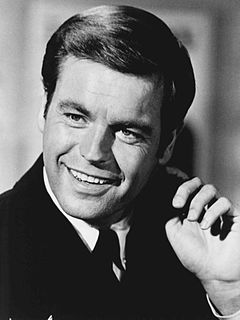
Robert John Wagner Jr. is an American actor of stage, screen, and television. He is known for starring in the television shows It Takes a Thief (1968–1970), Switch (1975–1978), and Hart to Hart (1979–1984). He later had a recurring role as Teddy Leopold in the TV sitcom Two and a Half Men (2007–2008) and made twelve guest appearances (2010–2019) as Anthony DiNozzo Sr. in the police procedural NCIS.
Jerry Goldsmith, American composer and conductor (d. 2004) births

Jerrald King Goldsmith was an American composer and conductor known for his work in film and television scoring. He composed scores for five films in the Star Trek franchise and three in the Rambo franchise, as well as for Logan's Run, Planet of the Apes, Tora! Tora! Tora!, Patton, Chinatown, Alien, Poltergeist, Gremlins, Hoosiers, Total Recall, Air Force One, L.A. Confidential, Mulan, and The Mummy. He also composed the fanfares accompanying the production logos used by multiple major film studios, and music for the Disney attraction Soarin'.
Jim Whittaker, American mountaineer births

James W. Whittaker, also known as Jim Whittaker, is an American mountaineer and mountain guide. Born and raised in Seattle, Washington, on May 1, 1963 he became the first American to reach the summit of Mount Everest as a member of the American Mount Everest Expedition led by Norman Dyhrenfurth, alongside the Sherpa Nawang Gombu. They ran out of oxygen, but managed to reach the summit.
Lou Whittaker, American mountaineer births

Lou Whittaker is a mountaineer, mountain guide, and entrepreneur. He and his twin brother, Jim Whittaker, an equally renowned mountaineer and guide, were born and raised in Seattle.
José Sánchez del Río, Mexican martyr and saint (b. 1913) deaths

José Luis Sánchez del Río was a Mexican Cristero who was put to death by government officials because he refused to renounce his Catholic faith. His death was seen as a largely political venture on the part of government officials in their attempt to stamp out dissent and crush religious freedom in the area. He was dubbed "Joselito."
Leontyne Price, American operatic soprano births

Mary Violet Leontyne Price is an American soprano who was the first African American soprano to receive international acclaim. From 1961 she began a long association with the Metropolitan Opera, where she was the first African American to be a leading performer. She regularly appeared at the world's major opera houses, the Royal Opera House, San Francisco Opera, Lyric Opera of Chicago, and La Scala, the last at which she was also the first African American to sing a leading role. She was particularly renowned for her performances of the title role in Verdi's Aida.
Sidney Bryan Berry, American general (d. 2013) births

Sidney Bryan Berry was a United States Army Lieutenant General, Superintendent of West Point (1974–1977), and Commissioner of Public Safety for the state of Mississippi (1980–1984).
Danny Blanchflower, Northern Irish soldier, footballer and manager (d. 1993) births

Robert Dennis Blanchflower was a former Northern Ireland footballer, football manager and journalist who played for and captained Tottenham Hotspur, including during their double-winning season of 1960–61. He was ranked as the greatest player ever in Spurs history by The Times in 2009.
Pierre Mondy, French actor and director (d. 2012) births
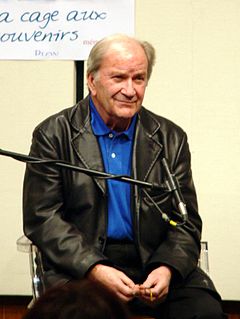
Pierre Mondy was a French film and theatre actor and director.
Max Ferguson, Canadian radio host and actor (d. 2013) births
Max Ferguson, OC was a Canadian radio personality and satirist, best known for his long-running radio programs Rawhide and The Max Ferguson Show on the Canadian Broadcasting Corporation (CBC).
Bud Poile, Canadian ice hockey player and coach (d. 2005) births

Norman Robert "Bud" Poile was a professional ice hockey player, coach, general manager, and league executive. Bud is the brother of Don Poile, and the father of David Poile.
Allie Sherman, American football player and coach (d. 2015) births

Alex "Allie" Sherman was an American football player and coach who played 51 games in six seasons in the National Football League (NFL) as a quarterback and defensive back, and afterward served as head coach of the Winnipeg Blue Bombers of the Canadian Football League (CFL) and of the New York Giants of the NFL. He later worked as a cable television and sports marketing executive and media personality.
Wilhelm Röntgen, German physicist and academic, Nobel Prize laureate (b. 1845) deaths

Wilhelm Conrad Röntgen was a German mechanical engineer and physicist, who, on 8 November 1895, produced and detected electromagnetic radiation in a wavelength range known as X-rays or Röntgen rays, an achievement that earned him the inaugural Nobel Prize in Physics in 1901. In honour of Röntgen's accomplishments, in 2004 the International Union of Pure and Applied Chemistry (IUPAC) named element 111, roentgenium, a radioactive element with multiple unstable isotopes, after him. The unit of measurement roentgen was also named after him.

The Nobel Prize in Physics is a yearly award given by the Royal Swedish Academy of Sciences for those who have made the most outstanding contributions for humankind in the field of physics. It is one of the five Nobel Prizes established by the will of Alfred Nobel in 1895 and awarded since 1901, the others being the Nobel Prize in Chemistry, Nobel Prize in Literature, Nobel Peace Prize, and Nobel Prize in Physiology or Medicine. Physics is traditionally the first award presented in the Nobel Prize ceremony.
Árpád Göncz, Hungarian author, playwright, and politician, 1st President of Hungary (d. 2015) births
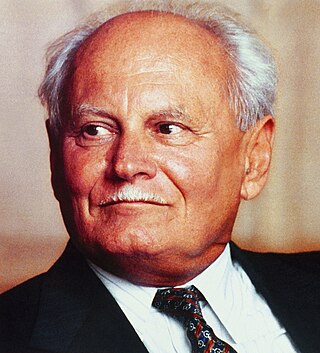
Árpád Göncz was a Hungarian writer, translator, agronomist, and liberal politician who served as President of Hungary from 2 May 1990 to 4 August 2000. Göncz played a role in the Hungarian Revolution of 1956, for which he was imprisoned for six years. After his release, he worked as a translator of English-language literary works.

The president of Hungary, officially the president of the republic, is the head of state of Hungary. The office has a largely ceremonial (figurehead) role, but may also veto legislation or send legislation to the Constitutional Court for review. Most other executive powers, such as selecting government ministers and leading legislative initiatives, are vested in the office of the prime minister instead.
José Gabriel da Costa later known as Mestre Gabriel, Brazilian spiritual leader, founder of the União do Vegetal (d. 1971) births
José Gabriel da Costa, later known as Mestre Gabriel, (1922–1971), is the founder of the União do Vegetal, a Christian religious sect that considers Hoasca to be its main sacrament. This beverage is made by boiling two plants, Mariri and Chacrona, both of which are found in the Amazon rainforest.
The Beneficent Spiritist Center União do Vegetal is a religious society founded on July 22, 1961 in Porto Velho (Rondônia) by José Gabriel da Costa, known as Mestre Gabriel. The UDV seeks to promote peace and to "work for the evolution of the human being in the sense of his or her spiritual development", as is written in its bylaws. The institution today has over 18,000 members, distributed among more than 200 local chapters located in all the states of Brazil, as well as in Peru, Australia, several countries in Europe, and the United States. The translation of União do Vegetal is Union of the Plants referring to the sacrament of the UDV, hoasca tea, also known as ayahuasca. This beverage is made by boiling two plants, mariri and chacrona, both of which are native to the Amazon rainforest.
Alex Comfort, English physician and author (d. 2000) births

Alexander Comfort was a British scientist and physician known best for his nonfiction sex manual, The Joy of Sex (1972). He was an author of both fiction and nonfiction, as well as a gerontologist, anarchist, pacifist, and conscientious objector.
Neva Patterson, American actress (d. 2010) births

Neva Louise Patterson was an American actress.
José Manuel Castañón, Spanish lawyer and author (d. 2001) births

José Manuel Castañón was a Spanish writer born in Pola de Lena, Asturias. Although he fought in Francisco Franco’s 1936 military uprising, he later distanced himself from Franco's regime and in 1957 left for a 20-year exile to Venezuela. His best-known novel Moletu-Voleva, published in Madrid in 1956, a story about lust for money.
Henry Strangways, English-Australian politician, 12th Premier of South Australia (b. 1832) deaths
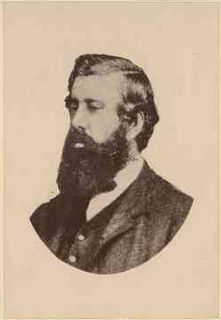
Henry Bull Templar Strangways was an Australian politician and Premier of South Australia.

The premier of South Australia is the head of government in the state of South Australia, Australia. The Government of South Australia follows the Westminster system, with a Parliament of South Australia acting as the legislature. The premier is appointed by the governor of South Australia, and by modern convention holds office by virtue of his or her ability to command the support of a majority of members of the lower house of Parliament, the House of Assembly.
Ioannis Charalambopoulos, Greek colonel and politician, Deputy Prime Minister of Greece (d. 2014) births
Ioannis Charalambopoulos was a Greek Army officer and socialist politician who served as Minister of Foreign Affairs and Minister of National Defence of Greece.

The Deputy Prime Minister of Greece is the second senior-most member of the Greek Cabinet. Despite the English translation of the title, he does not actually deputize for the Prime Minister, rather it is a mostly honorific post for senior ministers, and is usually combined with another senior government portfolio or a coordinating role over several ministries. The post is not permanent, rather it is created on an ad hoc basis, usually for the leaders of junior parties in coalition cabinets, and may be held by more than one person at once.
Abdul Hamid II, Ottoman sultan (b. 1842) deaths
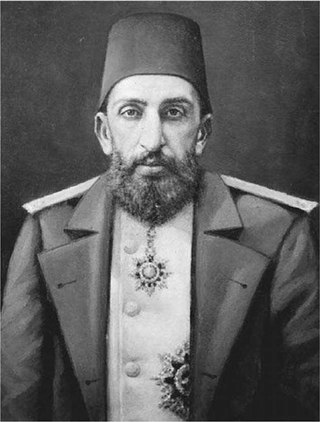
Abdülhamid or Abdul Hamid II was the sultan of the Ottoman Empire from 31 August 1876 to 27 April 1909, and the last sultan to exert effective control over the fracturing state. The time period which he reigned in the Ottoman Empire is known as the Hamidian Era. He oversaw a period of decline, with rebellions, and he presided over an unsuccessful war with the Russian Empire (1877–1878) followed by a successful war against the Kingdom of Greece in 1897, though Ottoman gains were tempered by subsequent Western European intervention.
Ernesto Teodoro Moneta, Italian soldier and journalist, Nobel Prize laureate (b. 1833) deaths

Ernesto Teodoro Moneta was an Italian journalist, nationalist, revolutionary soldier and later a pacifist and Nobel Peace Prize Laureate. He adopted the motto In varietate unitas! which later inspired Motto of the European Union.
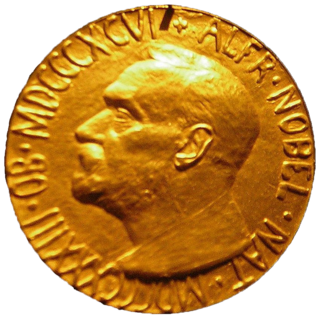
The Nobel Peace Prize is one of the five Nobel Prizes established by the will of Swedish industrialist, inventor and armaments manufacturer Alfred Nobel, along with the prizes in Chemistry, Physics, Physiology or Medicine and Literature. Since March 1901, it has been awarded annually to those who have "done the most or the best work for fraternity between nations, for the abolition or reduction of standing armies and for the holding and promotion of peace congresses".
John William Waterhouse, English soldier and painter (b. 1849) deaths
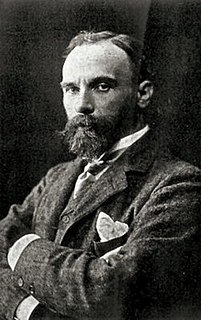
John William Waterhouse was an English painter known for working first in the Academic style and for then embracing the Pre-Raphaelite Brotherhood's style and subject matter. His artworks were known for their depictions of women from both ancient Greek mythology and Arthurian legend.
Vladimir Zeldin, Russian actor (d. 2016) births
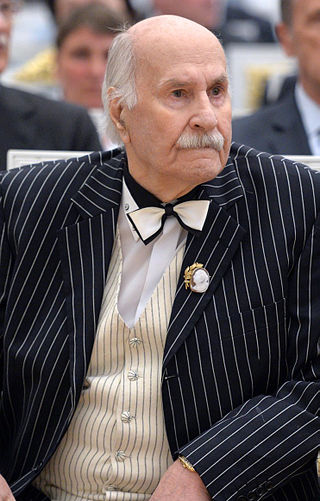
Vladimir Mikhailovich Zeldin was a Soviet and Russian stage and film actor. A centenarian, he was among the longest-serving stage performers and continued acting up until his death.
Larry Adler, American harmonica player, composer, and actor (d. 2001) births

Lawrence Cecil Adler was an American harmonica player. Known for playing major works, he played compositions by George Gershwin, Ralph Vaughan Williams, Malcolm Arnold, Darius Milhaud and Arthur Benjamin. During his later career, he collaborated with Sting, Elton John, Kate Bush and Cerys Matthews.
Konstantinos Tsiklitiras, Greek long jumper (b. 1888) deaths

Konstantinos "Kostas" Tsiklitiras was a Greek athlete and Olympic champion.
Joseph Lister, 1st Baron Lister, English surgeon and academic (b. 1827) deaths

Joseph Lister, 1st Baron Lister, was a British surgeon, medical scientist, experimental pathologist and a pioneer of antiseptic surgery and preventative medicine. Joseph Lister revolutionised the craft of surgery in the same manner that John Hunter revolutionised the science of surgery.
Dominique Pire, Belgian friar, Nobel Prize laureate (d. 1969) births
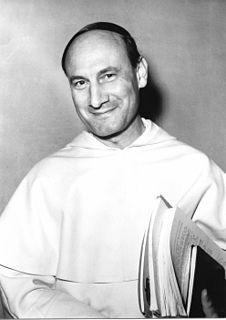
Dominique Pire, O.P. was a Belgian Dominican friar whose work helping refugees in post-World War II Europe saw him receive the Nobel Peace Prize in 1958. Pire delivered his Nobel lecture, entitled Brotherly Love: Foundation of Peace, in December 1958.

The Nobel Peace Prize is one of the five Nobel Prizes established by the will of Swedish industrialist, inventor and armaments manufacturer Alfred Nobel, along with the prizes in Chemistry, Physics, Physiology or Medicine and Literature. Since March 1901, it has been awarded annually to those who have "done the most or the best work for fraternity between nations, for the abolition or reduction of standing armies and for the holding and promotion of peace congresses".
Min Thu Wun, Burmese poet, scholar, and politician (d. 2004) births
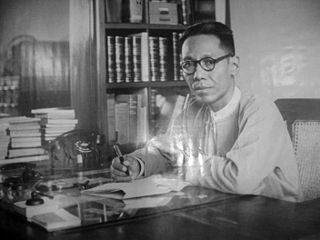
Thiri Pyanchi Min Thu Wun was a Burmese poet, writer and scholar who helped launch a new age literary movement called Khit-San in Burma. He is the father of Htin Kyaw, president of Myanmar from 2016 to 2018.
Jean Coulthard, Canadian composer and educator (d. 2000) births
Jean Coulthard, was a Canadian composer and music educator. She was one of a trio of women composers who dominated Western Canadian music in the twentieth century: Coulthard, Barbara Pentland, and Violet Archer. All three died within weeks of each other in 2000. Her own work might be loosely termed "prematurely neo-Romantic", as the orthodox serialists who dominated academic musical life in North America during the 1950s and 1960s had little use for her. Some of her well-known compositions include Cradle Song, Threnody, Canadian Fantasy, Ballade "A Winter's Tale" and her opera Return of the Native.
Anthony Cottrell, New Zealand rugby player (d. 1988) births

Anthony Ian "Beau" Cottrell was a New Zealand rugby union player. A hooker and prop, Cottrell represented Canterbury at a provincial level and was a member of the New Zealand national side, the All Blacks, from 1929 to 1932. He played 22 matches for the All Blacks including 11 internationals. He went on to serve as a member of the management committee of the Canterbury Rugby Union.
Lon Chaney Jr., American actor (d. 1973) births

Creighton Tull Chaney, known by his stage name Lon Chaney Jr., was an American actor known for playing Larry Talbot in the film The Wolf Man (1941) and its various crossovers, Count Alucard in Son of Dracula, Frankenstein's monster in The Ghost of Frankenstein (1942), the Mummy in three pictures, and various other roles in many Universal horror films. He also portrayed Lennie Small in Of Mice and Men (1939) and supporting parts in dozens of mainstream movies, including High Noon (1952), and The Defiant Ones (1958).
Ezra Butler Eddy, American-Canadian businessman and politician (b. 1827) deaths

Ezra Butler Eddy was a Canadian businessman and political figure. Born in Vermont, Eddy moved to Canada and founded the E. B. Eddy Company, which produced matches, and related wood products, and later diversified into pulp and paper, growing to a major manufacturer. Eddy later became a politician, serving as mayor of Hull, Quebec and Quebec legislator.
Walter A. Brown, American businessman, founded the Boston Celtics (d. 1964) births

Walter Augustine Brown was the founder and original owner of the Boston Celtics, as well as an important figure in the development of ice hockey in the United States.

The Boston Celtics is an American professional basketball team based in Boston. The Celtics compete in the National Basketball Association (NBA) as a member of the league's Eastern Conference Atlantic Division. Founded in 1946 as one of the league's original eight teams, the Celtics play their home games at TD Garden, which they share with the National Hockey League's Boston Bruins. The Celtics are one of the most successful basketball teams in NBA history. The franchise is one of two teams with 17 NBA Championships, the other franchise being the Los Angeles Lakers. The Celtics currently hold the record for the most recorded wins of any NBA team.
Chick Webb, American drummer and bandleader (d. 1939) births
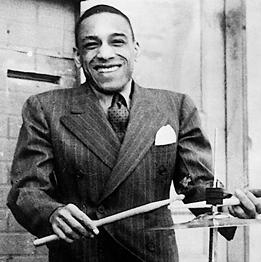
William Henry "Chick" Webb was an American jazz and swing music drummer and band leader.
John Farrow, Australian-American director, producer, and screenwriter (d. 1963) births
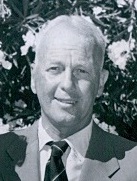
John Villiers Farrow, KGCHS was an Australian film director, producer, and screenwriter. Spending a considerable amount of his career in the United States, in 1942 he was nominated for the Academy Award for Best Director for Wake Island, and in 1957 he won the Academy Award for Best Adapted Screenplay for Around the World in Eighty Days. He had seven children by his wife, actress Maureen O'Sullivan, including actress Mia Farrow.
John A. Roche, American lawyer and politician, 30th Mayor of Chicago (b. 1844) deaths

John A. Roche was an American politician from Illinois who served as Mayor of Chicago from 1887 to 1889. He was the 30th mayor of the city.

The mayor of Chicago is the chief executive of city government in Chicago, Illinois, the third-largest city in the United States. The mayor is responsible for the administration and management of various city departments, submits proposals and recommendations to the Chicago City Council, is active in the enforcement of the city's ordinances, submits the city's annual budget and appoints city officers, department commissioners or directors, and members of city boards and commissions.
Waldemar Hoven, German physician (d. 1948) births

Waldemar Hoven was a Nazi and a physician at Buchenwald concentration camp.
Matthias Sindelar, Austrian footballer and manager (d. 1939) births

Matthias Sindelar was an Austrian professional footballer. Regarded as one of the greatest Austrian players of all-time, Sindelar played for Austria Wien and the Austrian national team.
Walter Houser Brattain, Chinese-American physicist and academic, Nobel Prize laureate (d. 1987) births
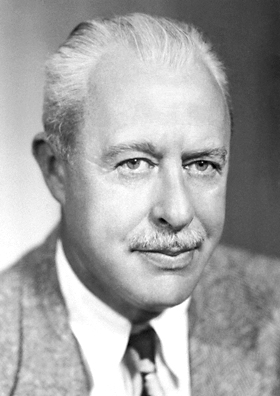
Walter Houser Brattain was an American physicist at Bell Labs who, along with fellow scientists John Bardeen and William Shockley, invented the point-contact transistor in December 1947. They shared the 1956 Nobel Prize in Physics for their invention. Brattain devoted much of his life to research on surface states.

The Nobel Prize in Physics is a yearly award given by the Royal Swedish Academy of Sciences for those who have made the most outstanding contributions for humankind in the field of physics. It is one of the five Nobel Prizes established by the will of Alfred Nobel in 1895 and awarded since 1901, the others being the Nobel Prize in Chemistry, Nobel Prize in Literature, Nobel Peace Prize, and Nobel Prize in Physiology or Medicine. Physics is traditionally the first award presented in the Nobel Prize ceremony.
Stella Adler, American actress and educator (d. 1992) births
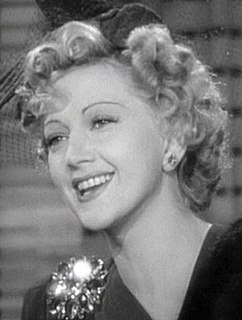
Stella Adler was an American actress and acting teacher. She founded the Stella Adler Studio of Acting in New York City in 1949. Later in life she taught part time in Los Angeles, with the assistance of her protégée, actress Joanne Linville, who continued to teach Adler's technique. Her grandson Tom Oppenheim now runs the school in New York City, which has produced alumni such as Marlon Brando, Robert De Niro, Harvey Keitel, Elaine Stritch, Kate Mulgrew, Kipp Hamilton, Jenny Lumet, and Jeff Celentano.
Bertolt Brecht, German director, playwright, and poet (d. 1956) births
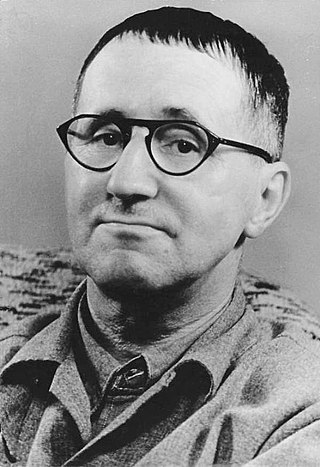
Eugen Berthold Friedrich Brecht, known professionally as Bertolt Brecht, was a German theatre practitioner, playwright, and poet. Coming of age during the Weimar Republic, he had his first successes as a playwright in Munich and moved to Berlin in 1924, where he wrote The Threepenny Opera with Kurt Weill and began a life-long collaboration with the composer Hanns Eisler. Immersed in Marxist thought during this period, he wrote didactic Lehrstücke and became a leading theoretician of epic theatre and the Verfremdungseffekt.
Joseph Kessel, French journalist and author (d. 1979) births

Joseph Kessel, also known as "Jef", was a French journalist and novelist. He was a member of the Académie française and Grand Officer of the Legion of Honour.
Judith Anderson, Australian actress (d. 1992) births
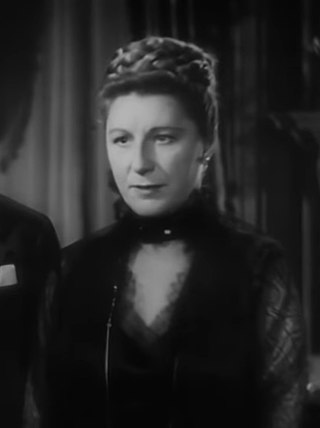
Dame Frances Margaret Anderson,, known professionally as Judith Anderson, was an Australian actress who had a successful career in stage, film and television. A pre-eminent stage actress in her era, she won two Emmy Awards and a Tony Award and was also nominated for a Grammy Award and an Academy Award. She is considered one of the 20th century's greatest classical stage actors.
John Franklin Enders, American virologist and academic, Nobel Prize laureate (d. 1985) births

John Franklin Enders was an American biomedical scientist and Nobel Laureate. Enders has been called "The Father of Modern Vaccines."

The Nobel Prize in Physiology or Medicine is awarded yearly by the Nobel Assembly at the Karolinska Institute for outstanding discoveries in physiology or medicine. The Nobel Prize is not a single prize, but five separate prizes that, according to Alfred Nobel's 1895 will, are awarded "to those who, during the preceding year, have conferred the greatest benefit to humankind". Nobel Prizes are awarded in the fields of Physics, Chemistry, Physiology or Medicine, Literature, and Peace.
Harold Macmillan, English captain and politician, Prime Minister of the United Kingdom (d. 1986) births

Maurice Harold Macmillan, 1st Earl of Stockton, was a British Conservative statesman and politician who was Prime Minister of the United Kingdom from 1957 to 1963. Caricatured as "Supermac", he was known for his pragmatism, wit and unflappability.

The prime minister of the United Kingdom is the head of government of the United Kingdom. The prime minister advises the sovereign on the exercise of much of the royal prerogative, chairs the Cabinet and selects its ministers. As modern prime ministers hold office by virtue of their ability to command the confidence of the House of Commons, they sit as members of Parliament.
Jimmy Durante, American actor, singer, and pianist (d. 1980) births

James Francis Durante was an American comedian, actor, singer, vaudevillian, and pianist. His distinctive gravelly speech, Lower East Side accent, comic language-butchery, jazz-influenced songs, and prominent nose helped make him one of America's most familiar and popular personalities of the 1920s through the 1970s. He often referred to his nose as the schnozzola, and the word became his nickname.
Bill Tilden, American tennis player and coach (d. 1953) births

William Tatem Tilden II, nicknamed "Big Bill", was an American tennis player. Tilden was the world No. 1 amateur for six consecutive years, from 1920 to 1925, and was ranked as the world No. 1 professional by Ray Bowers in 1931 and 1932 and Ellsworth Vines in 1933. He won 14 Major singles titles, including 10 Grand Slam events, one World Hard Court Championships and three professional majors. He was the first American man to win Wimbledon, taking the title in 1920. He also won a joint-record seven U.S. Championships titles.
Alan Hale Sr., American actor and director (d. 1950) births
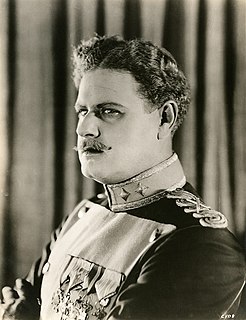
Alan Hale Sr. was an American actor and director. He is best remembered for his many character roles, in particular as a frequent sidekick of Errol Flynn, as well as films supporting Lon Chaney, Wallace Beery, Douglas Fairbanks, James Cagney, Clark Gable, Cary Grant, Humphrey Bogart, and Ronald Reagan. Hale was usually billed as Alan Hale and his career in film lasted 40 years. His son, Alan Hale Jr., also became an actor and remains most famous for playing "the Skipper" on the television series Gilligan's Island.
Sofia Kovalevskaya, Russian-Swedish mathematician and physicist (b. 1850) deaths
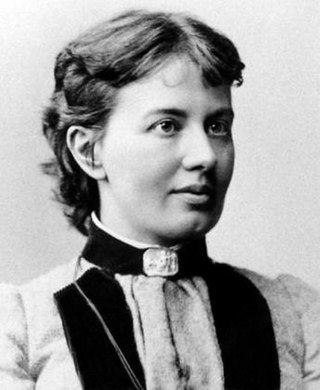
Sofya Vasilyevna Kovalevskaya, born Korvin-Krukovskaya, was a Russian mathematician who made noteworthy contributions to analysis, partial differential equations and mechanics. She was a pioneer for women in mathematics around the world – the first woman to obtain a doctorate in mathematics, the first woman appointed to a full professorship in northern Europe and one of the first women to work for a scientific journal as an editor. According to historian of science Ann Hibner Koblitz, Kovalevskaya was "the greatest known woman scientist before the twentieth century".
Fanny Kaplan, Ukrainian-Russian activist (d. 1918) births

Fanny Efimovna Kaplan was a Ukrainian Jewish woman, Socialist-Revolutionary, and early Soviet dissident. She was arrested for the attempted assassination of Vladimir Lenin and was executed by the Cheka in 1918.
Boris Pasternak, Russian poet, novelist, and literary translator Nobel Prize laureate (d. 1960) births

Boris Leonidovich Pasternak was a Russian poet, novelist, composer and literary translator. Composed in 1917, Pasternak's first book of poems, My Sister, Life, was published in Berlin in 1922 and soon became an important collection in the Russian language. Pasternak's translations of stage plays by Goethe, Schiller, Calderón de la Barca and Shakespeare remain very popular with Russian audiences.

The Nobel Prize in Literature is a Swedish literature prize that is awarded annually, since 1901, to an author from any country who has, in the words of the will of Swedish industrialist Alfred Nobel, "in the field of literature, produced the most outstanding work in an idealistic direction". Though individual works are sometimes cited as being particularly noteworthy, the award is based on an author's body of work as a whole. The Swedish Academy decides who, if anyone, will receive the prize. The academy announces the name of the laureate in early October. It is one of the five Nobel Prizes established by the will of Alfred Nobel in 1895. Literature is traditionally the final award presented at the Nobel Prize ceremony. On some occasions the award has been postponed to the following year, most recently in 2018 as of May 2022.
Cevdet Sunay, Turkish general and politician, 5th President of Turkey (d. 1982) births

Cevdet Sunay was a Turkish politician and army officer, who served as the fifth President of Turkey from 1966 to 1973.
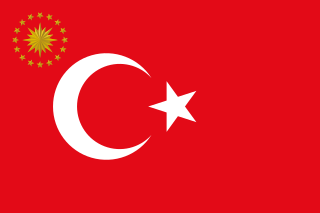
The president of Turkey, officially the president of the Republic of Turkey, is the head of state and head of government of Turkey. The president directs the executive branch of the national government and is the commander-in-chief of the Turkish military. The president also heads the National Security Council.
Ellen Wood, English author (b. 1814) deaths
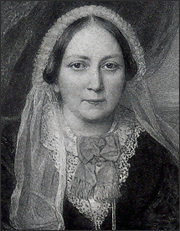
Ellen Price was an English novelist better known as Mrs. Henry Wood. She is best remembered for her 1861 novel East Lynne. Many of her books sold well internationally and were widely read in the United States. In her time, she surpassed Charles Dickens in fame in Australia.
Edith Clarke, American electrical engineer (d. 1959) births
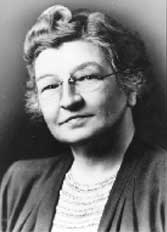
Edith Clarke was the first woman to be professionally employed as an electrical engineer in the United States, and the first female professor of electrical engineering in the country. She was the first woman to deliver a paper at the American Institute of Electrical Engineers, the first female engineer whose professional standing was recognized by Tau Beta Pi, and the first woman named as a Fellow of the American Institute of Electrical Engineers. She specialized in electrical power system analysis and wrote Circuit Analysis of A-C Power Systems.
H.V. Hordern, Australian cricketer (d. 1938) births

Dr. Herbert Vivian Hordern, also known as Ranji Hordern, was an Australian cricketer who played in seven Test matches between 1911 and 1912. He was the first major leg-spin and googly bowler to play for Australia. His nickname, "Ranji", came from his dark complexion, and is a reference to the famous Indian England test cricketer K S Ranjitsinhji. Hordern was a member of the Hordern family, well known as retailers in Sydney.
Pauline Brunius, Swedish actress and director (d. 1954) births

Pauline Brunius, née Emma Maria Pauline Lindstedt was a Swedish stage and film actor, screenwriter and film and theatre director. She was the managing director of the Royal Dramatic Theatre from 1938 to 1948.
Ernst Põdder, Estonian general (d. 1932) births

Ernst-Johannes Põdder VR I/1 was a famous Estonian military commander in the Estonian War of Independence.
Honoré Daumier, French illustrator and painter (b. 1808) deaths

Honoré-Victorin Daumier was a French painter, sculptor, and printmaker, whose many works offer commentary on the social and political life in France, from the Revolution of 1830 to the fall of the second Napoleonic Empire in 1870. He earned a living throughout most of his life producing caricatures and cartoons of political figures and satirizing the behavior of his countrymen in newspapers and periodicals, for which he became well known in his lifetime and is still known today. He was a republican democrat who attacked the bourgeoisie, the church, lawyers and the judiciary, politicians, and the monarchy. He was jailed for several months in 1832 after the publication of Gargantua, a particularly offensive and discourteous depiction of King Louis-Philippe. Daumier was also a serious painter, loosely associated with realism.
Royal Cortissoz, American art critic (d. 1948) births

Royal Cortissoz was an American art historian and, from 1891 until his death, the art critic for the New York Herald Tribune. During his tenure at the newspaper, he consistently championed traditionalism and decried modernism. Of the latter, he once wrote, "It will someday prove a kind of Victorian 'dud', with a difference, obviously, but a 'dud' just the same."
Prince Waldemar of Prussia (d. 1879) births

Prince Joachim Friedrich Ernst Waldemar of Prussia was the sixth child and youngest son of German Crown Prince Friedrich, and Victoria, Princess Royal, the eldest daughter of the British Queen Victoria.
William Allen White, American journalist and author (d. 1944) births

William Allen White was an American newspaper editor, politician, author, and leader of the Progressive movement. Between 1896 and his death, White became a spokesman for middle America.
Robert Garran, Australian lawyer and public servant (d. 1957) births

Sir Robert Randolph Garran was an Australian lawyer who became "Australia's first public servant" – the first federal government employee after the federation of the Australian colonies. He served as the departmental secretary of the Attorney-General's Department from 1901 to 1932, and after 1916 also held the position of Solicitor-General of Australia.
Heinrich Lenz, Estonian-Italian physicist and academic (b. 1804) deaths

Heinrich Friedrich Emil Lenz, usually cited as Emil Lenz or Heinrich Lenz in some countries, was a Russian physicist of Baltic German descent who is most noted for formulating Lenz's law in electrodynamics in 1834.
Alexandre Millerand, French lawyer and politician, 12th President of France (d. 1943) births

Alexandre Millerand was a French politician. He was Prime Minister of France from 20 January to 23 September 1920 and President of France from 23 September 1920 to 11 June 1924. His participation in Waldeck-Rousseau's cabinet at the start of the 20th century, alongside the Marquis de Galliffet, who had directed the repression of the 1871 Paris Commune, sparked a debate in the French Section of the Workers' International (SFIO) and in the Second International about the participation of socialists in bourgeois governments.

The president of France, officially the president of the French Republic, is the executive head of state of France, and the commander-in-chief of the French Armed Forces. As the presidency is the supreme magistracy of the country, the position is the highest office in France. The powers, functions and duties of prior presidential offices, in addition to their relation with the prime minister and Government of France, have over time differed with the various constitutional documents since the Second Republic.
David Thompson, English-Canadian surveyor and explorer (b. 1770) deaths

David Thompson was a British-Canadian fur trader, surveyor, and cartographer, known to some native people as "Koo-Koo-Sint" or "the Stargazer". Over Thompson's career, he travelled 90,000 kilometres (56,000 mi) across North America, mapping 4.9 million square kilometres of North America along the way. For this historic feat, Thompson has been described as the "greatest practical land geographer that the world has produced".
José Joaquín de Herrera, Mexican politician and general (b. 1792) deaths
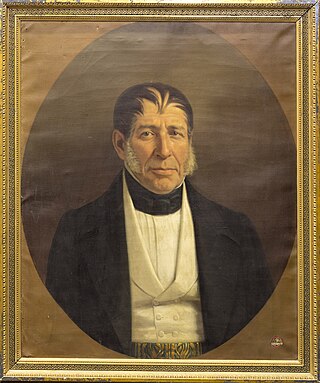
José Joaquín Antonio de Herrera was a Mexican moderate politician who served as president of Mexico three times, and as a general in the Mexican Army during the Mexican–American War of 1846–1848.
Nabinchandra Sen, Bangladeshi poet and author (d. 1909) births

Nabinchandra Sen was a Bengali poet and writer, often considered one of the greatest poets prior to the arrival of Rabindranath Tagore. He commented on the battle of Plassey and the arrival of British Rule in India as "A night of Eternal Gloom".
Lord Charles Beresford, Irish admiral and politician (d. 1919) births

Admiral Charles William de la Poer Beresford, 1st Baron Beresford,, styled Lord Charles Beresford between 1859 and 1916, was a British admiral and Member of Parliament.
Ira Remsen, American chemist and academic (d. 1927) births

Ira Remsen was an American chemist who discovered the artificial sweetener saccharin along with Constantin Fahlberg. He was the second president of Johns Hopkins University.
Maria Aletta Hulshoff, Dutch feminist and pamphleteer (b. 1781) deaths
Maria Aletta Hulshoff was a Dutch Patriot, feminist and pamphleteer.
Adelina Patti, Italian-French opera singer (d. 1919) births

Adelina Patti was an Italian 19th-century opera singer, earning huge fees at the height of her career in the music capitals of Europe and America. She first sang in public as a child in 1851, and gave her last performance before an audience in 1914. Along with her near contemporaries Jenny Lind and Thérèse Tietjens, Patti remains one of the most famous sopranos in history, owing to the purity and beauty of her lyrical voice and the unmatched quality of her bel canto technique.
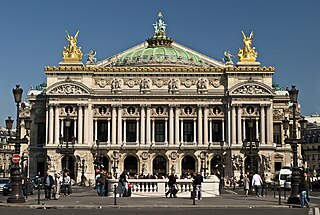
Opera is a form of theatre in which music is a fundamental component and dramatic roles are taken by singers. Such a "work" is typically a collaboration between a composer and a librettist and incorporates a number of the performing arts, such as acting, scenery, costume, and sometimes dance or ballet. The performance is typically given in an opera house, accompanied by an orchestra or smaller musical ensemble, which since the early 19th century has been led by a conductor. Although musical theatre is closely related to opera, the two are considered to be distinct from one another.
Agnes Mary Clerke, Irish astronomer and author (d. 1907) births

Agnes Mary Clerke was an Irish astronomer and writer, mainly in the field of astronomy. She was born in Skibbereen, County Cork, Ireland, and died in London.
Alexander Pushkin, Russian poet and author (b. 1799) deaths
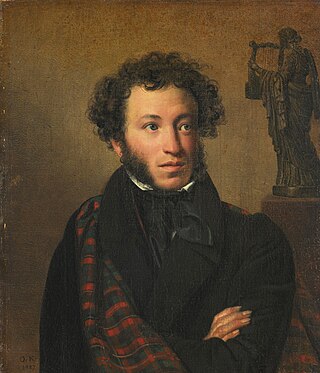
Alexander Sergeyevich Pushkin was a Russian poet, playwright, and novelist of the Romantic era. He is considered by many to be the greatest Russian poet and the founder of modern Russian literature.
Peter Heywood, British naval officer (b. 1772) deaths
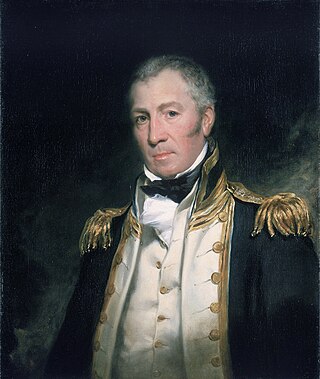
Peter Heywood was a British naval officer who was on board HMS Bounty during the mutiny of 28 April 1789. He was later captured in Tahiti, tried and condemned to death as a mutineer, but subsequently pardoned. He resumed his naval career and eventually retired with the rank of post-captain, after 29 years of honourable service.
Pope Leo XII (b. 1760) deaths

Pope Leo XII (Italian: Leone XII; born Annibale Francesco Clemente Melchiorre Girolamo Nicola della Genga, was head of the Catholic Church and ruler of the Papal States from 28 September 1823 to his death in February 1829.
Samuel Plimsoll, English merchant and politician (d. 1898) births
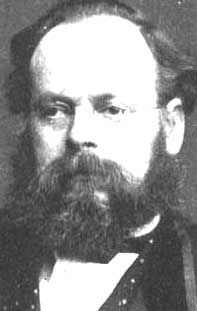
Samuel Plimsoll was a British politician and social reformer, now best remembered for having devised the Plimsoll line.
Roberto Bompiani, Italian painter and sculptor (d. 1908) births

Roberto Bompiani was an Italian painter and sculptor.
George Chichester, 3rd Marquess of Donegall (d. 1883) births

George Hamilton Chichester, 3rd Marquess of Donegall, styled Viscount Chichester until 1799 and Earl of Belfast between 1799 and 1844, was an Anglo-Irish landowner, courtier and politician. He served as Vice-Chamberlain of the Household from 1830 to 1834, as well as from 1838 to 1841, and as Captain of the Yeomen of the Guard between 1848 and 1852. Ennobled in his own right in 1841, he was also Lord Lieutenant of Antrim from 1841 to 1883 and was made a Knight of St Patrick in 1857.
Ary Scheffer, Dutch-French painter and academic (d. 1858) births

Ary Scheffer was a Dutch-French Romantic painter. He was known mostly for his works based on literature, with paintings based on the works of Dante, Goethe, and Lord Byron, as well as religious subjects. He was also a prolific painter of portraits of famous and influential people in his lifetime. Politically, Scheffer had strong ties to King Louis Philippe I, having been employed as a teacher of the latter's children, which allowed him to live a life of luxury for many years until the French Revolution of 1848.
Claude-Louis Navier, French physicist and engineer (d. 1836) births

Claude-Louis Navier was a French mechanical engineer, affiliated with the French government, and a physicist who specialized in continuum mechanics.
Friedrich Christoph Oetinger, German theologian and author (b. 1702) deaths

Friedrich Christoph Oetinger was a German Lutheran theologian and theosopher.
Charles Lamb, English poet and essayist (d. 1834) births

Charles Lamb was an English essayist, poet, and antiquarian, best known for his Essays of Elia and for the children's book Tales from Shakespeare, co-authored with his sister, Mary Lamb (1764–1847).
Benjamin Smith Barton, American botanist and physician (d. 1815) births

Benjamin Smith Barton was an American botanist, naturalist, and physician. He was one of the first professors of natural history in the United States and built the largest collection of botanical specimens in the country. He wrote the first American textbook on botany.
Montesquieu, French lawyer and philosopher (b. 1689) deaths

Charles Louis de Secondat, Baron de La Brède et de Montesquieu, generally referred to as simply Montesquieu, was a French judge, man of letters, historian, and political philosopher.
William Cornwallis, English admiral and politician (d. 1819) births

Admiral of the Red Sir William Cornwallis, was a Royal Navy officer. He was the brother of Charles Cornwallis, the 1st Marquess Cornwallis, British commander at the siege of Yorktown. Cornwallis took part in a number of decisive battles including the siege of Louisbourg in 1758, when he was 14, and the Battle of the Saintes but is best known as a friend of Lord Nelson and as the commander-in-chief of the Channel Fleet during the Napoleonic Wars. He is depicted in the Horatio Hornblower novel, Hornblower and the Hotspur.
Johann Melchior Molter, German violinist and composer (d. 1765) births

Johann Melchior Molter was a German composer and violinist of the late Baroque period.
William Dugdale, English genealogist and historian (b. 1605) deaths

Sir William Dugdale was an English antiquary and herald. As a scholar he was influential in the development of medieval history as an academic subject.
Aaron Hill, English poet and playwright (d. 1750) births
Aaron Hill was an English dramatist and miscellany writer.
Judith Leyster, Dutch painter (b. 1609) deaths

Judith Jans Leyster was a Dutch Golden Age painter. She painted genre works, portraits and still lifes. Although her work was highly regarded by her contemporaries, Leyster and her work became almost forgotten after her death. Her entire oeuvre was attributed to Frans Hals or to her husband, Jan Miense Molenaer, until 1893. It wasn't until the late 19th century that she was recognized for her artistic abilities.
Cornelis de Bie, Flemish poet and jurist (d. 1715) births

Cornelis de Bie was a Flemish rederijker, poet, jurist and minor politician from Lier. He is the author of about 64 works, mostly comedies. He is known internationally today for his biographical sketches of Flemish and Dutch painters in his Het Gulden Cabinet der Edel Vry Schilderconst, first printed in 1662.
John Suckling, English poet and playwright (d. 1642) births

Sir John Suckling was an English poet, prominent among those renowned for careless gaiety and wit – the accomplishments of a Cavalier poet. He also invented the card game cribbage. He is best known for his poem "Ballade upon a Wedding".
Christine of France, Duchess of Savoy (d. 1663) births
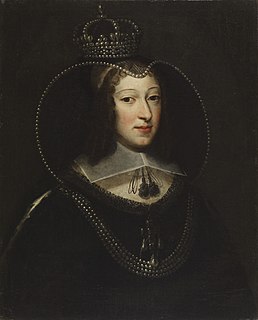
Christine of France was the sister of Louis XIII and Duchess of Savoy by marriage. Upon the death of her husband Victor Amadeus I in 1637, she acted as regent of Savoy between 1637 and 1648.
Wilhelm Xylander, German scholar, translator, and academic (b. 1532) deaths
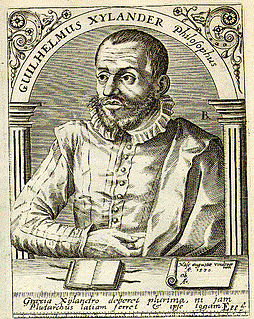
Wilhelm Xylander was a German classical scholar and humanist. He served as rector of Heidelberg University in 1564.
Henry Stuart, Lord Darnley, consort of Mary, Queen of Scots (b. 1545) deaths

Henry Stuart, Lord Darnley, was an English nobleman who was the second husband of Mary, Queen of Scots, and the father of James VI of Scotland and I of England. Through his parents, he had claims to both the Scottish and English thrones, and from his marriage in 1565 he was king consort of Scotland. Less than a year after the birth of his son, Darnley was murdered at Kirk o' Field in 1567. Many contemporary narratives describing his life and death refer to him as simply Lord Darnley, his title as heir apparent to the Earldom of Lennox.

Mary, Queen of Scots, also known as Mary Stuart or Mary I of Scotland, was Queen of Scotland from 14 December 1542 until her forced abdication in 1567.
John V, Count of Oldenburg, German noble (b. 1460) deaths

John V, Count of Oldenburg and Delmenhorst was a member of the House of Oldenburg. He was the ruling Count of Oldenburg from 1500 to 1526. His parents were Gerhard VI, Count of Oldenburg and Adelheid of Tecklenburg.
Catherine of Saxony, Archduchess of Austria (b. 1468) deaths

Catherine of Saxony, a member of the House of Wettin, was the second wife of Sigismund, Archduke of Austria and Regent of Tyrol.
Domenico Bollani, Bishop of Milan (d. 1579) births

Domenico Bollani (1514–1579) was a diplomat and politician of the Republic of Venice, and as Bishop of Brescia from 1559 to 1579 he was a leading figure of the Catholic reform.
Thomas Platter, Swiss author and scholar (d. 1582) births

Thomas Platter the Elder was a Swiss humanist scholar and writer.
George of the Palatinate, German bishop (d. 1529) births

George of the Palatinate was Bishop of Speyer from 1513 to 1529.
Frederick II, Margrave of Brandenburg (b. 1413) deaths
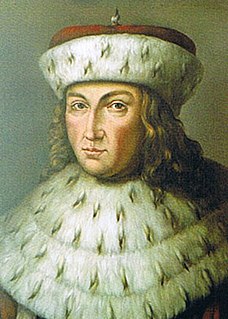
Frederick II of Brandenburg, nicknamed "the Iron" and sometimes "Irontooth" (Eisenzahn), was a Prince-elector of the Margraviate of Brandenburg from 1440 until his abdication in 1470, and was a member of the House of Hohenzollern.
Blessed Clare of Rimini (b. 1282) deaths

Clare of Rimini was an Italian Poor Clare who was beatified.
Temür Khan, Emperor Chengzong of Yuan (b. 1265) deaths

Öljeytü Khan, born Temür, also known as Emperor Chengzong of Yuan by his temple name Chengzong, was the second emperor of the Yuan dynasty of China, ruling from May 10, 1294 to February 10, 1307. Apart from Emperor of China, he is considered as the sixth Great Khan of the Mongol Empire, although it was only nominal due to the division of the empire. He was an able ruler of the Yuan dynasty, and his reign established the patterns of power for the next few decades. His name means "blessed iron Khan" in the Mongolian language.
John "the Red" Comyn, Scottish nobleman deaths
John Comyn III of Badenoch, nicknamed the Red, was a leading Scottish baron and magnate who played an important role in the First War of Scottish Independence. He served as Guardian of Scotland after the forced abdication of his uncle, King John Balliol, in 1296, and for a time commanded the defence of Scotland against English attacks. Comyn was stabbed to death by Robert the Bruce before the altar at the church of the Greyfriars at Dumfries.
Margaret II, Countess of Flanders (b. 1202) deaths

Margaret, often called Margaret of Constantinople, ruled as Countess of Flanders during 1244–1278 and Countess of Hainaut during 1244–1253 and 1257–1280. She was the younger daughter of Baldwin IX, Count of Flanders and Hainaut, and Marie of Champagne.
Emperor Shijō of Japan (b. 1231) deaths

Emperor Shijō was the 87th emperor of Japan, according to the traditional order of succession. This reign spanned the years 1232 through 1242.
Saint Verdiana, Italian recluse (b. 1182) deaths

Veridiana is an Italian saint.
Baldwin III of Jerusalem (b. 1130) deaths

Baldwin III was King of Jerusalem from 1143 to 1163. He was the eldest son of Melisende and Fulk of Jerusalem. He became king while still a child, and was at first overshadowed by his mother Melisende, whom he eventually defeated in a civil war. During his reign Jerusalem became more closely allied with the Byzantine Empire, and the Second Crusade tried and failed to conquer Damascus. Baldwin captured the important Egyptian fortress of Ascalon, but also had to deal with the increasing power of Nur ad-Din in Syria. He died childless and was succeeded by his brother Amalric.
William IX, Duke of Aquitaine (b. 1071) deaths
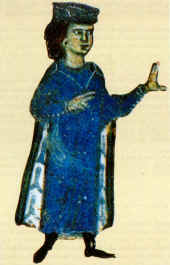
William IX, called the Troubadour, was the Duke of Aquitaine and Gascony and Count of Poitou between 1086 and his death. He was also one of the leaders of the Crusade of 1101. Though his political and military achievements have a certain historical importance, he is best known as the earliest troubadour—a vernacular lyric poet in the Occitan language—whose work survives.
Scholastica, Christian nun deaths

Scholastica is a saint of the Catholic Church, the Eastern Orthodox Churches and the Anglican Communion. She was born in Italy. According to a ninth century tradition, she was the twin sister of Benedict of Nursia. Her feast day is 10 February, Saint Scholastica's Day. Scholastica is traditionally regarded as the founder of the Benedictine nuns.
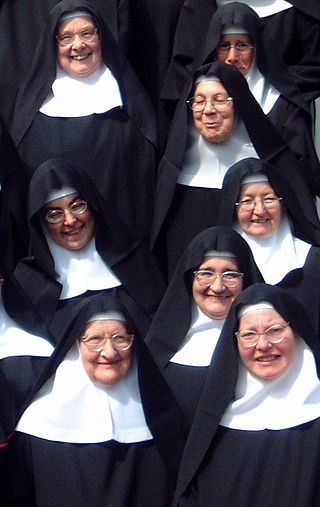
A nun is a woman who vows to dedicate her life to religious service, typically living under vows of poverty, chastity, and obedience in the enclosure of a monastery or convent. The term is often used interchangeably with religious sisters who do take simple vows but live an active vocation of prayer and charitable work.
Christian feast day: Austrebertha
Austrebertha was a French nun of the Middle Ages, who took the veil very young and was a nun at the Port Monastery in the Ponthieu. Then she became abbess to the foundation of Pavilly, where she died at the beginning of the eighth century, at the age of 74 years. She is venerated as a saint by the Catholic Church. Her feast day is February 10.
Christian feast day: Charalambos
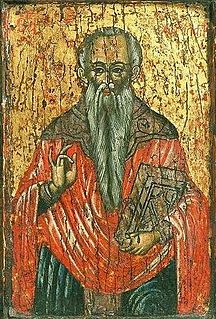
Saint Charalampos was an early Christian priest in Magnesia on the Maeander, a city in Asia Minor, in the diocese of the same name. His name Χαράλαμπος means glowing with joy in Greek. He lived during the reign of Septimius Severus (193–211), when Lucian was Proconsul of Magnesia. According to one source, at the time of his martyrdom in 202, Charalambos was 113 years old.
Christian feast day: José Sánchez del Río

José Luis Sánchez del Río was a Mexican Cristero who was put to death by government officials because he refused to renounce his Catholic faith. His death was seen as a largely political venture on the part of government officials in their attempt to stamp out dissent and crush religious freedom in the area. He was dubbed "Joselito."
Christian feast day: Scholastica

Scholastica is a saint of the Catholic Church, the Eastern Orthodox Churches and the Anglican Communion. She was born in Italy. According to a ninth century tradition, she was the twin sister of Benedict of Nursia. Her feast day is 10 February, Saint Scholastica's Day. Scholastica is traditionally regarded as the founder of the Benedictine nuns.
Christian feast day: February 10 (Eastern Orthodox liturgics)

February 9 - Eastern Orthodox liturgical calendar - February 11
Feast of St. Paul's Shipwreck (Malta)
Malta is the country with the most holidays in the European Union. Since 2005, any holidays falling on Saturdays or Sundays do not add an extra day to the workers' leave pool.

Malta, officially the Republic of Malta, is an island country in the Mediterranean Sea. It consists of an archipelago, between Italy and Libya, and is often considered a part of Southern Europe. It lies 80 km (50 mi) south of Sicily (Italy), 284 km (176 mi) east of Tunisia, and 333 km (207 mi) north of Libya. The official languages are Maltese and English, and 66% of the current Maltese population is at least conversational in the Italian language.
Fenkil Day (Eritrea)
There are approximately sixteen nationally recognized public holidays in Eritrea, a country in the Horn of Africa. The primary national holiday is Independence Day (24/05), Martyrs Day (20/06) and Revolution Day. Other commemorative public holidays include Fenkil Day—commemorating the Battle of Massawa and Afabet Day—commemorating the Battle of Afabet (20/03). Additional holidays follow the calendar of the Eritrean Orthodox Tewahedo Church and the two holy Eids Muslim holidays are observed as public holidays in Eritrea.

Eritrea, officially the State of Eritrea, is a country in the Horn of Africa region of Eastern Africa, with its capital and largest city at Asmara. It is bordered by Ethiopia in the south, Sudan in the west, and Djibouti in the southeast. The northeastern and eastern parts of Eritrea have an extensive coastline along the Red Sea. The nation has a total area of approximately 117,600 km2 (45,406 sq mi), and includes the Dahlak Archipelago and several of the Hanish Islands.
Kurdish Authors Union Day (Iraqi Kurdistan)
This is a list of public holidays in Iraq.

Iraqi Kurdistan or Southern Kurdistan refers to the Kurdish-populated part of northern Iraq. It is considered one of the four parts of "Kurdistan" in Western Asia, which also includes parts of southeastern Turkey, northern Syria, and northwestern Iran. Much of the geographical and cultural region of Iraqi Kurdistan is part of the Kurdistan Region (KRI), an autonomous region recognized by the Constitution of Iraq. As with the rest of Kurdistan, and unlike most of the rest of Iraq, the region is inland and mountainous.
National Memorial Day of the Exiles and Foibe (Italy)
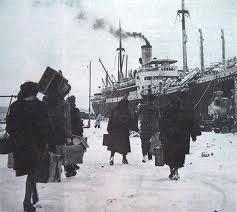
National Memorial Day of the Exiles and Foibe, or Giorno del ricordo in Italian language, is an Italian celebration for the memory of the victims of the Foibe and the Istrian–Dalmatian exodus, which led to the emigration of hundreds of thousands of local ethnic Italians from Yugoslavia after the end of the Second World War.

Italy, officially the Italian Republic, is a country located in the middle of the Mediterranean Sea, in Southern Europe; its territory largely coincides with the homonymous geographical region. Italy is also considered part of Western Europe. A unitary parliamentary republic with Rome as its capital and largest city, the country covers a total area of 301,230 km2 (116,310 sq mi) and shares land borders with France, Switzerland, Austria, Slovenia and the enclaved microstates of Vatican City and San Marino. Italy has a territorial exclave in Switzerland, Campione. With over 60 million inhabitants, Italy is the third-most populous member state of the European Union.